
Why Latvia?
Moving to Latvia

04 Everyday life
Driving Healthcare
Employment
A snapshot of what’s on offer
Unique to Latvia
Sports
Nature Education
Staying in Latvia
Helpful resources
Settling in
Useful e-services
Staying safe




Driving Healthcare
A snapshot of what’s on offer
Unique to Latvia
Sports
Nature Education
Staying in Latvia
Helpful resources
Settling in
Useful e-services
Staying safe

Most common greeting:
Currency: Euro
Official language: Latvian
Population: 1.88 million
Capital city: Riga
Ethnic makeup:
Latvians 63%
Russians 24.2%
Belarusians 3.1%
Ukrainians 2.2%
Poles 1.9%
Lithuanians 1.1%
Others 4.5%
Central Statistical Bureau of Latvia, 2023
(pronounced “ciao”, like the Italians)
Government:
Parliamentary Republic
Part of NATO and the EU since 2004
Emergency number: 112
Electricity: C/F sockets, 220V
Weather
Latvia experiences the four seasons at their fullest. The warmest month is July with average maximum temperature of +21.5°C, while the coldest months are January and February with average minimums of -7.5°C and -7.9°C.
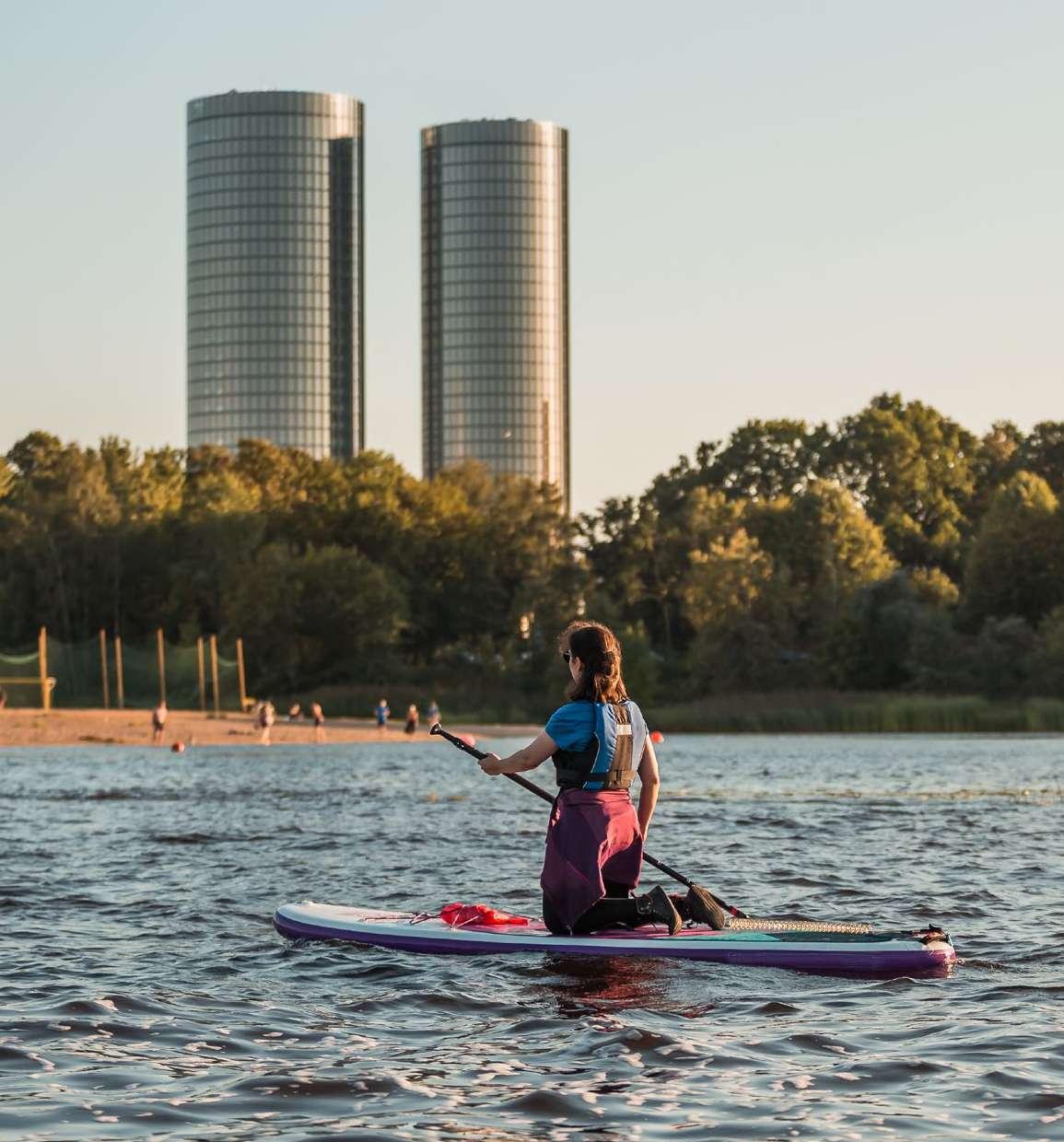
Latvia practically doesn’t experience natural disasters. The worst you’ll get is some snow, which locals will be thrilled about as they pull out their cross-country skis.
They may seem a bit distant at first. But when you get to know them, you can be certain that you’ve come across true friendship. You always know where you stand.
Latvia is a country where everyone has space to live their lives as they’ve imagined, with plenty of room for your own self expression. We’re a small, but mighty country when we come together, and boy do we love to come together when we’re facing a collective challenge. Be that in sports, in sadness, or pride of our achievements.
⊲ 51% of territory covered by forest
⊲ 513km white sandy beach coastline
⊲ 2,000 lakes
⊲ 12,000 rivers
Latvians cherish nature, and make full use of it being so accessible.
It’s completely feasible to take a sunrise walk in a bog and manage to be at the office by 9am, or decide to have your lunch at the beach and get there in 20min.
Riga itself has forests in the city, making it possible not only to enjoy the forest that’s at arms’ reach, but also to indulge in autumn foraging – essentially a national pastime.

The luxury of easy access to nature is a lifestyle that can’t be beat.
⊲ Largest indoor market in Europe
⊲ No markup for farmer’s market produce
⊲ Emphasis on seasonal eating
In Latvia, eating clean is the default. With farmer’s markets in every major neighbourhood (without costly markups, no less), finding clean, affordable, and fresh produce is the status quo.
Moreover, seasonal eating is the norm. You’ll find local produce in all major grocery stores or you can buy freshly harvested fruit and vegetables directly from farmers in markets, stores, and roadside stalls.

Latvians love going foraging for mushrooms and berries. Every Latvian knows “a spot” - an untouched corner deep within a forest rich with wild blueberry bushes or chanterelle spawns. A true mark of friendship with a Latvian is when they’re willing to share their secret location.
You don’t have to strive to eat healthy here, it comes with the territory. Getting to know neighbours will also likely result in veggie swaps when there’s a seasonal overflow. Prepare for being offered zucchinis and pumpkins in the fall!
⊲ #4 among mid-sized European cities of the future for human capital and lifestyle - Riga (fDi Intelligence 2023)

⊲ #1 city for drone technology development - Riga (fDi Strategy Awards 2021)
⊲ 3 degrees of separation
A natural playground to execute ideas, start businesses, develop skills, and test the waters.
Our policies are entrepreneur-friendly, our people are skilled, our location puts you at the crossroads between the East and the West – everything you need to thrive is readily available.
Within Latvia’s small community of less than 2 million, anyone can usually be reached by 2 to 3 calls (or tweets), even the ministers.

⊲ 99% of territory covered by 4G
⊲ 5G pioneers
⊲ 2nd among OECD in mobile data usage
⊲ 9th in EU in e-government benchmark
This country likes to move fast when it comes to trying out new things and adopting the latest tech. With one of the most connected societies and some of the fastest internet in the world, we like to try new things, build digital tools, and enjoy a connected lifestyle.
⊲ Countless renowned classical musicians
⊲ 2.2% of the population participates in the UNESCO-protected Song and Dance Festival Latvia calls itself the singing nation – and for good reason!
Song permeates everyday life – many people sing in choirs, music can be often heard on the streets, and musical events are frequent and usually at a very affordable price.
Latvia is home to world-class musicians such as opera singers Elina Garanca, Inese Galante, Kristine Opolais, conductor Andris Nelsons, violinist Gidons Kremers, and so many more.
⊲ No 2. spender on culture in the EU
⊲ Centuries-old traditions maintained
⊲ 30,000+ participants in Song and Dance festivals
Latvians love and respect culture – in all forms. Traditional culture is respected and maintained, with songs, dances, ancient crafts and rituals abounding.
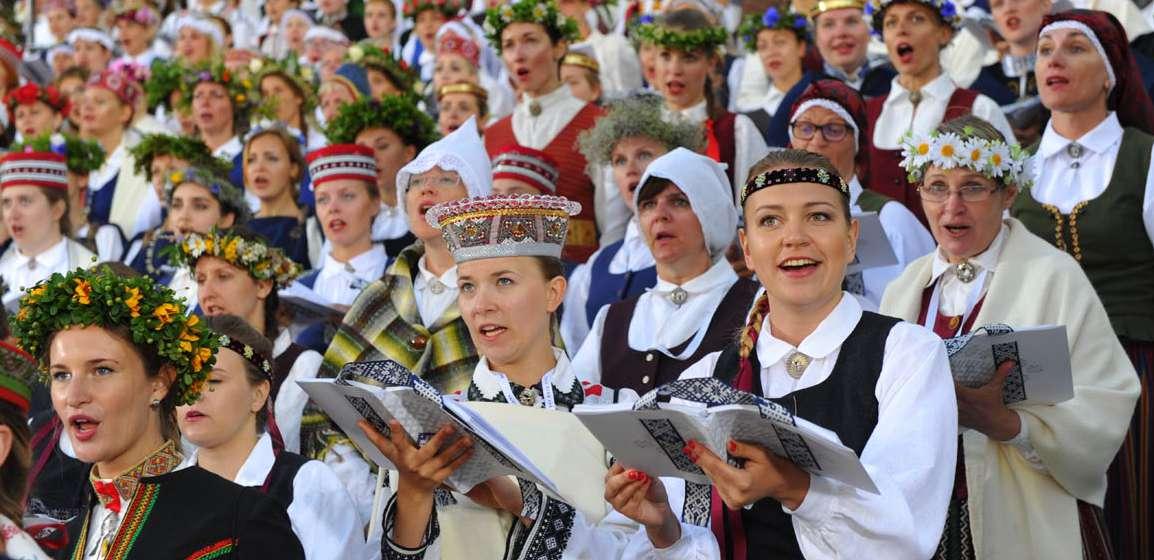
Theatre, opera, and ballet performances are world-class, and available at a price that anyone can attend – and they do!
It’s no wonder Latvia was the springboard for ballet dancer and choreographer Mihail Barishnikov, and internationally acclaimed theatre director Alvis Hermanis, to name a few.
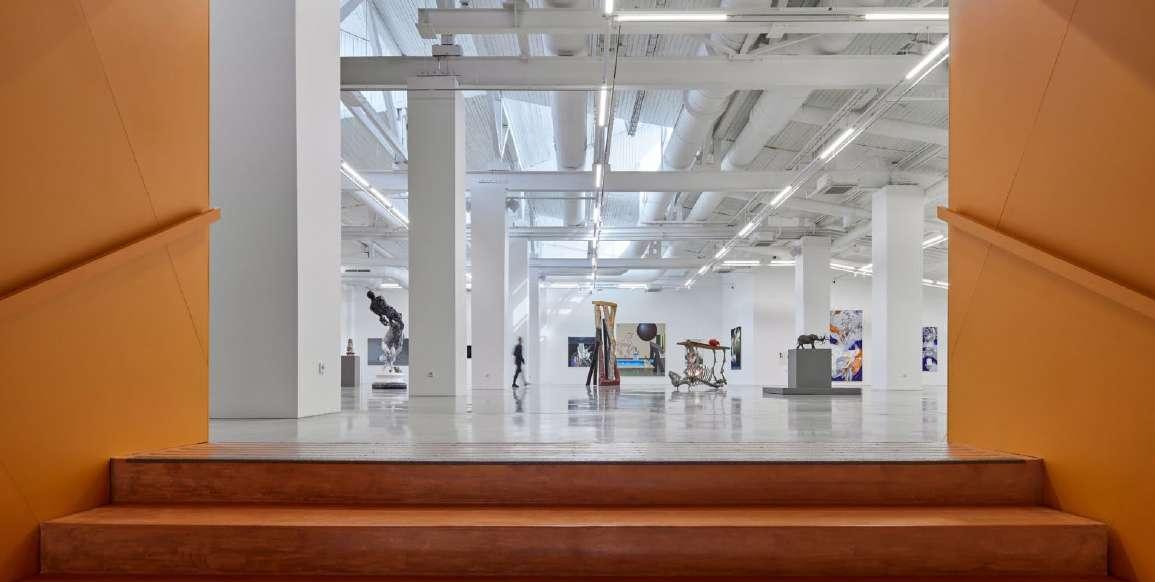
⊲ Bronze at World Ice Hockey Championship 2023
⊲ 6x world cup champions in skeleton (in a row!)
⊲ 1st olympic BMX gold medal
Latvians love to get behind their teams. Usually it’s a David and Goliath type situation, and the Latvians take down the giant.
We do particularly well in winter sports – ice hockey, where we’re the smallest country in the International Ice Hockey Federation, bobsleigh, where we’ve taken many international medals, and skeleton, where our duo of Dukurs brothers are bound to take the pedestal.
We also have many players in the NBA and NHL, making being international sports fans a national pastime.
Of the last 3 Olympic events, 10 Olympic Winter Games medal winners come from Sigulda, making it the #1 municipality in the world in terms of medals per capita.
Easy access to global destinations
⊲ 100+ destinations by air
⊲ Nearly the geographical center of Europe
Latvians enjoy being at the center of North and South, East and West. With the most connected airport in the Baltics, it means no destination is out of reach. An opportunity for short travel trips is always available, to the most diverse of destinations.


You’ll need a residence permit and a place to live.
There’s no sugar-coating it, this involves the typical hassle that comes with moving to a foreign country. You need to determine which permit you qualify for, you need to find a place to live, and you need to sort out the moving itself.

But worry not, we’re here to help.
In this section, you can find the practical info and resources needed for setting up your longer stay.
If a longer stay in Latvia is what you’re after, we’d love to have you!



Ukrainians entering Latvia do not need a vaccination certificate or travel documents, only their biometric passport. You can find more information at the one-stop-shop website here: “Ukraine to Latvia”
EU citizen relocation checklist
☑ Find an employer
EU, EEA, and Swiss citizens won’t need a visa to work and live in Latvia. That being said, if staying for longer than 3 months, you’ll need to:
01 Register with the Office of Citizenship and Migration Affairs (OCMA), demonstrating that you’re either: employed or self-employed in Latvia a service provider or an employee of an EU-registered company a student studying locally
☑ Find a place to live
☑ Travel to Latvia
☑ Open a bank account
☑ Start working
☑ Apply for an ID-card at the OCMA
☑ Declare your address
☑ Get settled in and enjoy!
Temporary residence permits are suspended for Russian and Belarusian citizens, with some exceptions, such as family reunification, employment, etc. You can read more here:
For non-EU citizens looking to relocate to Latvia, you’ll need to meet two requirements:

01
Obtaining a visa to enter the country (unless you’re from one of the 60+ countries with a visa-free regime)
02
If you want to work or study – obtain a residence permit or
Obtain a long-term D-Visa for work , which lets you enter the country and work for up to 1 year, and only takes 2-3 weeks to obtain.
Learn more about each of the options available to non-EU citizens to work, build a business, or study in Latvia in the next pages.
02
Declare your address in Latvia by presenting a document (for example, rental/lease agreement) confirming your place of residence in Latvia. See section “Declaration of residence” for a detailed process description!
You can register a partner, spouse and children as well!
Just want to dip your toes in the water and come over for a shorter amount of time? Come over with a Schengen business or tourism visa to stay for 90 days. Learn more here.
General application process to receive a residence permit
The basic work permit – this applies to most job seekers
Length of term: Up to 5 years with the possibility of extension
Application time: 6-8 weeks
Criteria:
⊲ You must have an agreement in place with an employer in Latvia offering you employment and an invitation submitted to the OCMA by the employer
⊲ At least 3 years of related work experience or education
Job seekers that are considered highly qualified*
Length of term: Up to 5 years with the possibility of extensions
Application time: Up to 2 months
Criteria:
⊲ You must have an agreement in place with an employer in Latvia offering you employment and an invitation submitted to the OCMA by the employer
⊲ 5 years of professional experience in the industry OR
⊲ Academic experience of at least 3 years in a program related to the intended employment industry
01 Find an employer & vacancy that suits your experience and receive an invitation from your employer to come to Latvia.
For those looking to establish a scalable business that’s registered in Latvia*
Length of term: Up to 3 years
Application time: 3 to 5 months
Criteria:
Draft of the start-up idea (no more than a one-pager!) outlining the team, technological aspect of the idea, competitive advantage and development plan for three years. Submit it to LIAA by visiting the info page!
Non-EU citizen relocation checklist
☑ Find a job in Latvia
02
S ubmit your documents at the Latvian consulate in your country of residence or by mail (if you’re already in Latvia) and wait for the decision from the OCMA.
*Up to five founders under the same startup business idea can receive the residence permit.
For those looking to study full-time
Length of term: The length of the study program
Application time: 6 to 8 weeks
Criteria:
03
After OCMA’s approval, travel to Latvia to finish the process – submit your biometrics at an OCMA’s office, undergo a fluorography procedure and obtain health insurance.
Enrollment in full-time studies at a registered institution of higher education in Latvia
☑ Your employer submits a Sponsorship Request at the OCMA
☑ Apply for a temporary residence permit for work
☑ Find a place to live
☑ Apply for an entry visa (if required)
☑ Travel to Latvia
If you resign or the job contract is terminated, you are eligible to apply for an unemployed status in Latvia with this permit and request extra 3 months of stay to look for a new Employer.
04
Receive your visa or a residence permit card !
All of the residence permits will give you access to:
⊲ Free movement within the Schengen area
⊲ Access to a certified eSignature
⊲ Perspective of permanent residence
Additional benefits:
⊲ Option to relocate your spouse and children
⊲ Opening local bank account free of charge
⊲ Registering with National Compulsory Health Insurance Scheme
☑ Apply for an ID-card at the OCMA
☑ Declare your address
☑ Open a bank account
☑ Start working
☑ Get settled in and enjoy!
This is the fastest way to start working in Latvia. You can come on the D-visa, and apply for a residence permit later on.
Length of term: Up to 1 year
Application time: 2-3 weeks
Criteria:
― You must have an agreement in place with an employer in Latvia offering you employment and an invitation submitted to the OCMA by the employer At least 3 years of official work experience in the profession in which the employer intends to employ you in Latvia
In contrast to residence permits, this visa will not give you access to the Latvian ID card and the benefits it incurs.
For persons who are employed by an employer registered abroad or who are self-employed persons registered abroad and perform their work remotely
Length of term: one year, with the right to apply for an extension for another year
Criteria:
You are a professional, who will need to prove at least six months’ employment with an employer registered abroad
You are registered as a self-employed person abroad, and a monthly salary of at least 2.5 times the average salary in Latvia
Visa recipients do not have the right to employment in the Republic of Latvia!
ID card and residence permit recipients are asked to delcare their residence at the OCMA.
It’s recommended to have written consent from your landloard.
A declared residence is a requirement for:
― entering into relationships with various private and public institutions, such as banks and schools being able to receive any official communications from governmental institutions
Additionally, depending on the municipality you declare in, you can gain from local benefits, discounts, and bonuses:
Riga residents can obtain a Riga Resident’s Card, which gives certain discounts, can be used as an e-ticket and e-wallet.
― Sigulda residents can obtain a Sigulda Card, which also gives discounts in various shops and allows them to use the city’s bus network free of charge, among other benefits.
If at any point you move to a new address, you can easily change your declared residence online at latvija.lv. To access the page, you’ll either need an eSignature or online banking credentials that come with opening a bank account.

The 5 biggest banks in Latvia are:
⊲ Swedbank
⊲ Citadele
⊲ SEB
⊲ Rietumu banka
⊲ Luminor
Most banks in Latvia offer user-friendly, convenient banking services online. However, non-citizens will have to book an appointment to visit a branch in person to open a bank account
To start the process, you will need:
⊲ passport or ID card
⊲ for non-residents, one of the following: an EU citizen certificate a Latvian residence document (such as a D-visa or residence permit)
― a document proving a tie to Latvia (such as an employment contract or a study agreement)
Families are treasured in Latvia, with every new addition celebrated. What more would you expect from a small country?
As a result, there are several programs in place to support families, particularly those with newborns:
― Latvia has one of the most progressive parental leave programs in the world. Parents can take up to 1.5 years off of paid leave, which can be taken by either the mother or father (or divided up by both!)
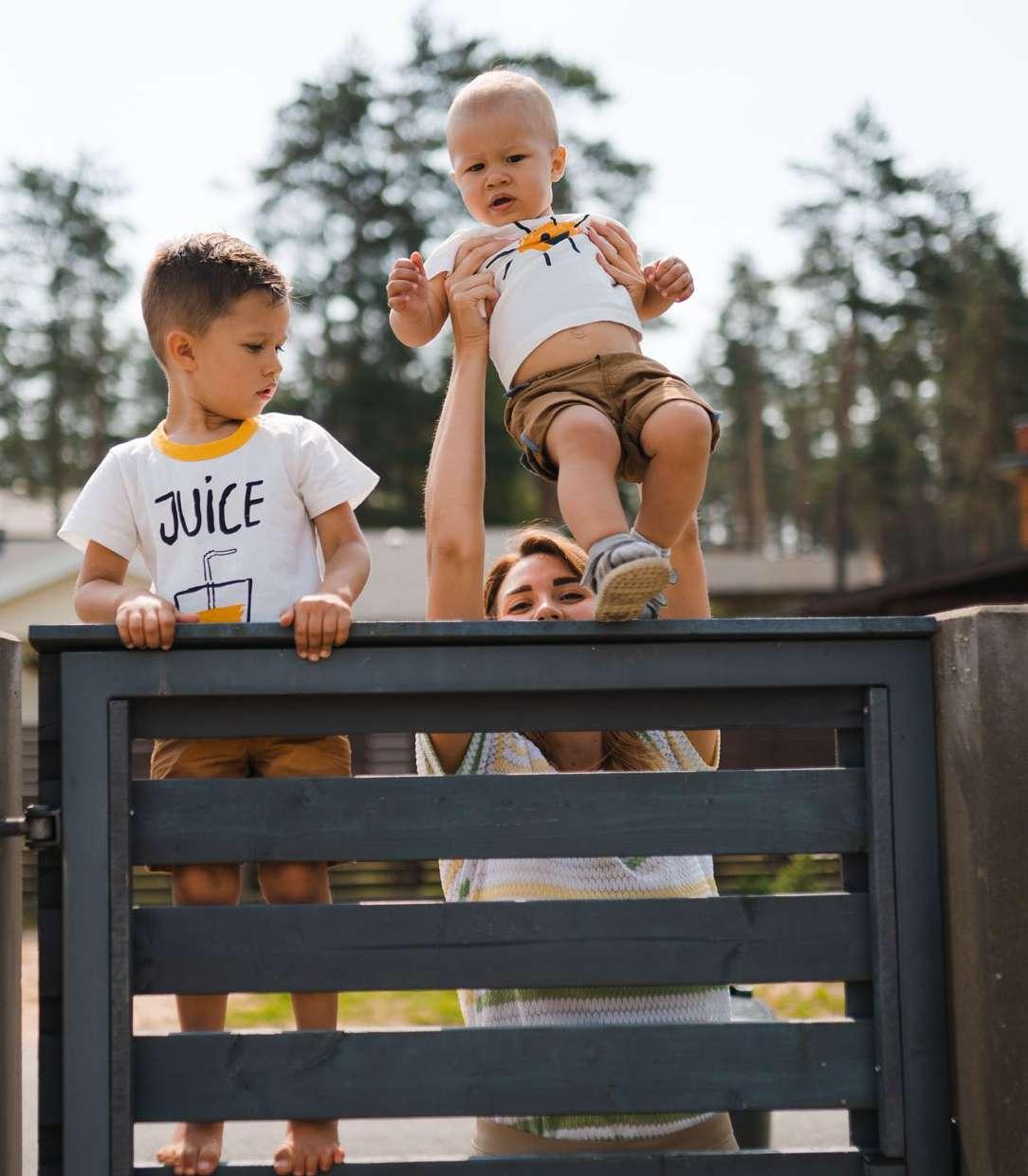
Maternity benefits and family support relief payments are available, based on contributed taxes.
Eligibility is a bit complicated, and each situation is unique. We recommend consulting the State Social Insurance Agency to see if you’re eligible. EU/EEA/Swiss nationals that pay taxes in Latvia could be eligible, but unfortunately, other country nationals are not.
A wide selection of housing is available both in Riga and outside of it, suited for whichever lifestyle you’re looking to build. From central apartments in the middle of the bustle, to leisurely countryside homes to be closer to nature.

Many rentals are already fully or partially furnished.
There are several websites that are commonly used to find homes both for rent and for sale, the most popular ones being:
⊲ www.ss.com
⊲ www.inch.lv
Riga stands out with the greatest housing affordability among the Baltic capital cities mainly due to higher wage growth that exceeds the price growth of apartments.
(Swedbank, 2022)
⊲ www.city24.lv
⊲ www.arcoreal.lv
⊲ www.rentinriga.lv
⊲ www.kivi.lv
⊲ www.latio.lv
In addition to the established real-estate sites, there are also a handful of Facebook groups where listings are shared. You can find some hidden treasures there. Join the groups and check them regularly – the best deals are snatched up very quickly!
⊲ Dzīvokļu īres piedāvājumi draugiem/paziņām
⊲ Dzīvokļi Rīgā - Pārdod - Izīrē
⊲ Dzīvokļus īrē, izīrē, pērk, pārdod - RĪGĀ
The rental market is hot, with the best deals going fast. We recommend identifying the area you want to live in (for example, closer to the city center to be near the hustle and bustle, or closer to your workplace for a quicker commute, etc.), and keeping an eye out for rental opportunities that pop up.
The process is simple – you see a listing you like, then get in touch with the listed contact person. You can request to arrange a viewing. If you like what you see, you can let them know you’ll take it. Keep in mind – this usually happens on a “first come, first served” basis, so timing is important.
Though agreements can vary, typically the renter is expected to cover rent + utilities. The published rent amount is usually only the rent part, unless otherwise stated.
Landlords commonly request the first and last month of rent upfront (you don’t lose that last month, it’s simply already paid for).
What to ask the landlord when considering renting?
A sample of utility bills (for both summer and winter months) to have an understanding of potential costs. It’s not unusual for winter bills to be twice as high due to heating costs.
The amount of security deposit to be paid upon renting the apartment. Typically, the security deposit comes out to 1-2 months rent.
A rundown of the items in the utility bill, to make sure you know what’s included and what you’re expected to pay for separately (electricity or gas, for example).
― You may be able to negotiate on the rent, but if demand is high, don’t get your hopes up.
Ask if it’s ok to register the apartment as your declared residence address. Although it’s within your rights, it’s better to confirm this to avoid any issues in the future.
The amount of rooms listed pertains to total rooms in the apartment, not just bedrooms.

Property prices in Latvia are comparatively low, however, they’re trending upwards at a steady pace. As a result, buying property in Latvia is both accessible, as well as a great potential investment for the future.
It’s as simple as browsing properties, and when you find something you like, contacting the seller to schedule a property tour. Or you can always turn to real-estate agencies and agents that can do the legwork for you, as well as help you navigate the market.
Mortgages are available from banks. Get in touch with them first to receive an offer, as well as a sum that you’d be pre-approved for. When you identify the property you’d like to buy, the bank will perform an assessment of value, and then decide on issuing the mortgage.
Homes and the land they’re on can be sold separately. When looking at buying a house, make sure that you check if the land is included.
Apartments can be sold in two formats – per unit, or in shares, which is called “domājamās daļas”. While it doesn’t change the fact that you own the property, the format does have implications on buying procedures, property tax, and other matters, such as communal space renovations.

Property tax is paid quarterly. The amount is subject to the value of the area you live in and the size of your property. This amount can change as areas gain or lose value over time.
When purchasing apartments in the “domājāmās daļas” format, you are subject to a process that lets other owners claim the apartment in your stead within three months of you singing the purchasing contract, due to a process called “pirmpirkuma tiesības”. While rarely enacted, it can be an unpleasant surprise if not prepared. Speak to your real-estate agent to maneuver these situations.
Agents can be helpful in scouting properties for you and managing the documents. They take their commission from the seller, so you don’t have to worry about paying one.
A few reputable real estate firms include:
⊲ Ober-Haus
⊲ Latio
⊲ Sotheby’s International Realty
⊲ Arco Real Estate
⊲ Baltic Expert
There are several programs in place to support new property buyers. These programs are available to any citizen or residence permit holder that meets the criteria.
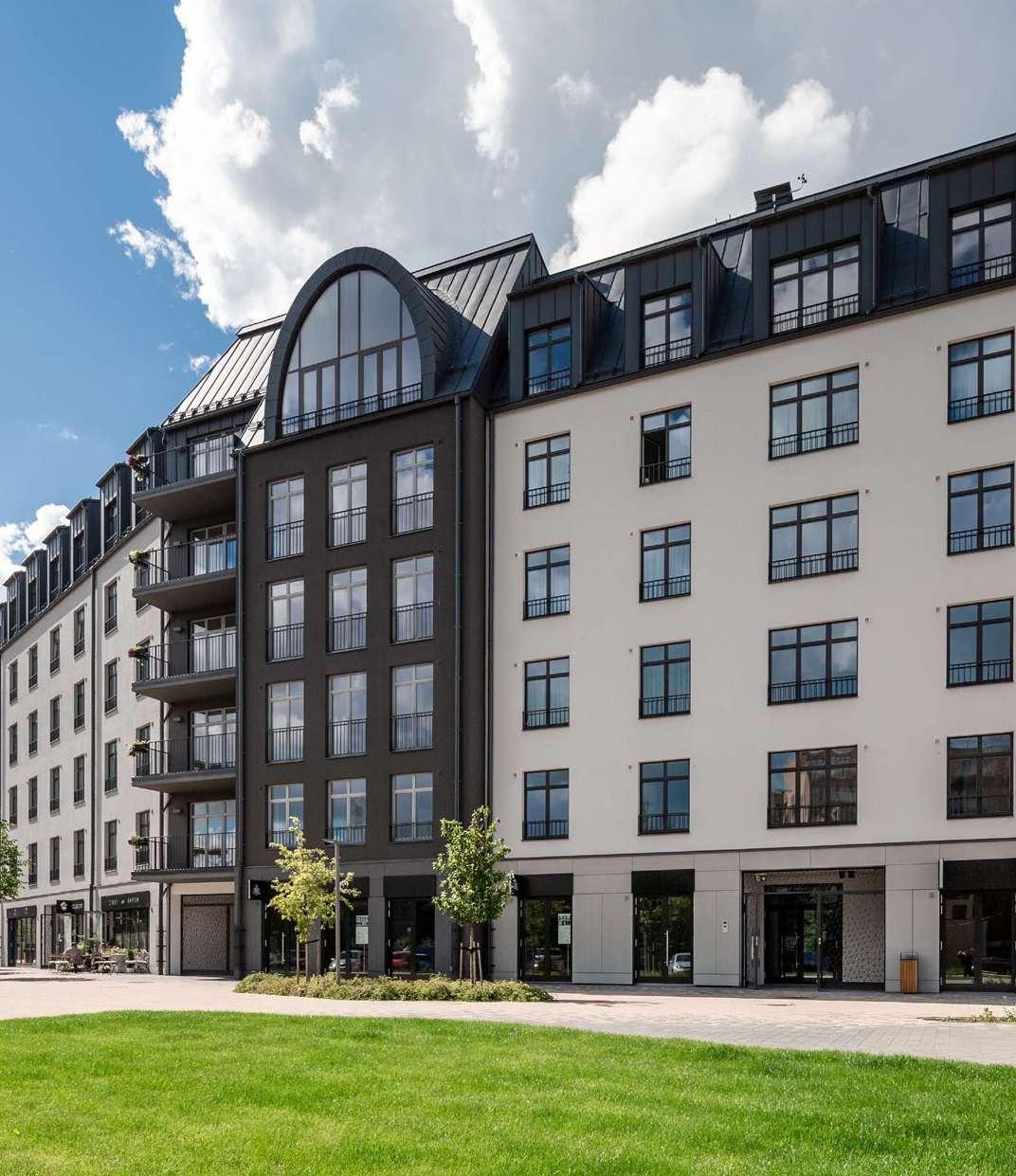
The support available is: a short-term loan towards your down payment taking the place of your guarantor (guarantors are required when taking a mortgage)
The two qualifying categories are: New parents – have a child or are expecting, and have a regular monthly income. Young professionals – have a regular monthly income, have acquired a vocational secondary or higher education, are up to 35 years old.
You can learn more about these support programs at Altum:
Your furry friends are more than welcome to come along. They’ll be subject to just a few requirements before getting the all-clear.
Your dog, cat or ferret will need to be: micro-chipped or have a legible tattoo (if applied before 3 July 2011) vaccinated against rabies
― treated against the tapeworm Echinococcus multilocularis, where necessary in possession of a valid European pet passport (if travelling within the EU) or an EU animal health certificate (if travelling from a non-EU country)
Some municipalities have specific requirements for pet owners. Please consult your municipality for more information after arriving.

International shipping companies will be of the greatest help to bring your belongings to Latvia. Shipping times vary depending on the country of origin and traffic restrictions imposed as a result of Covid-19 in Europe (if any).
The most common pets in Latvia are cats and about 38% of households have one, which is the second highest number in Europe.
When moving within the EU, no tax restrictions are in place.
However if moving from outside the EU, import and other taxes may apply:
Personal property (such as household items) can be applied for tax exemption, clothes and other necessities aren’t taxed.
― Items you’ve had for less than six months will be subject to import duties and taxes.
See all terms and conditions here:


Specific restrictions may apply to some countries, so please check the Food and Veterinary Service page before traveling.
After relocation, dog owners should register their pet at the Agricultural Data Centre
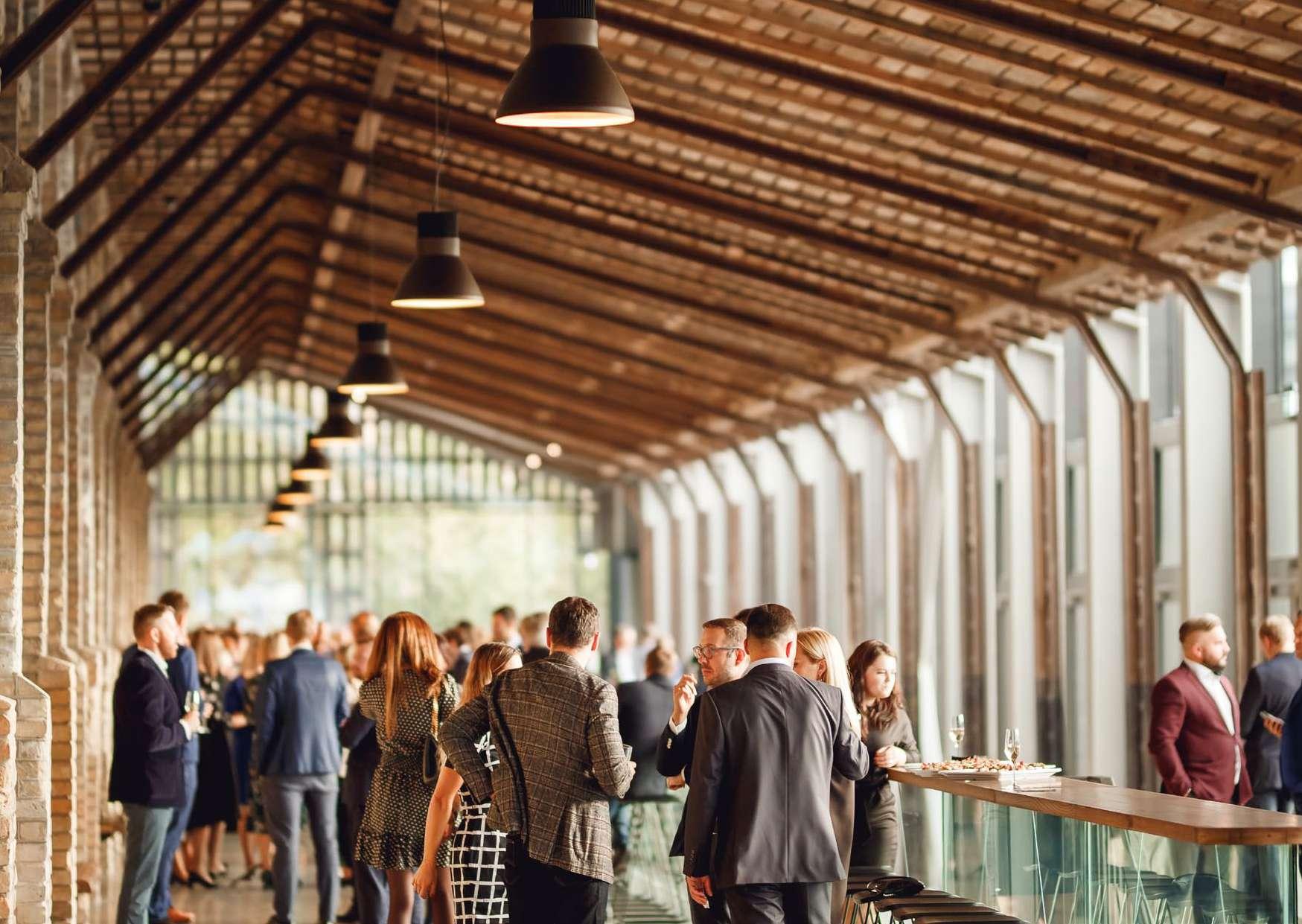
Both employers and the country itself reflect this hunger in vacancies as well as state programs to attract international talent.
The highest demand for talent is expected in the fields of IT, sciences, and engineering in the nearest future. Economists predict that the Latvian labor market will be in strong need of professionals with education in STEM subjects as well as those with vocational education.
Let’s go over the basics of finding employment, starting a business, and any programs that might help you in that process.
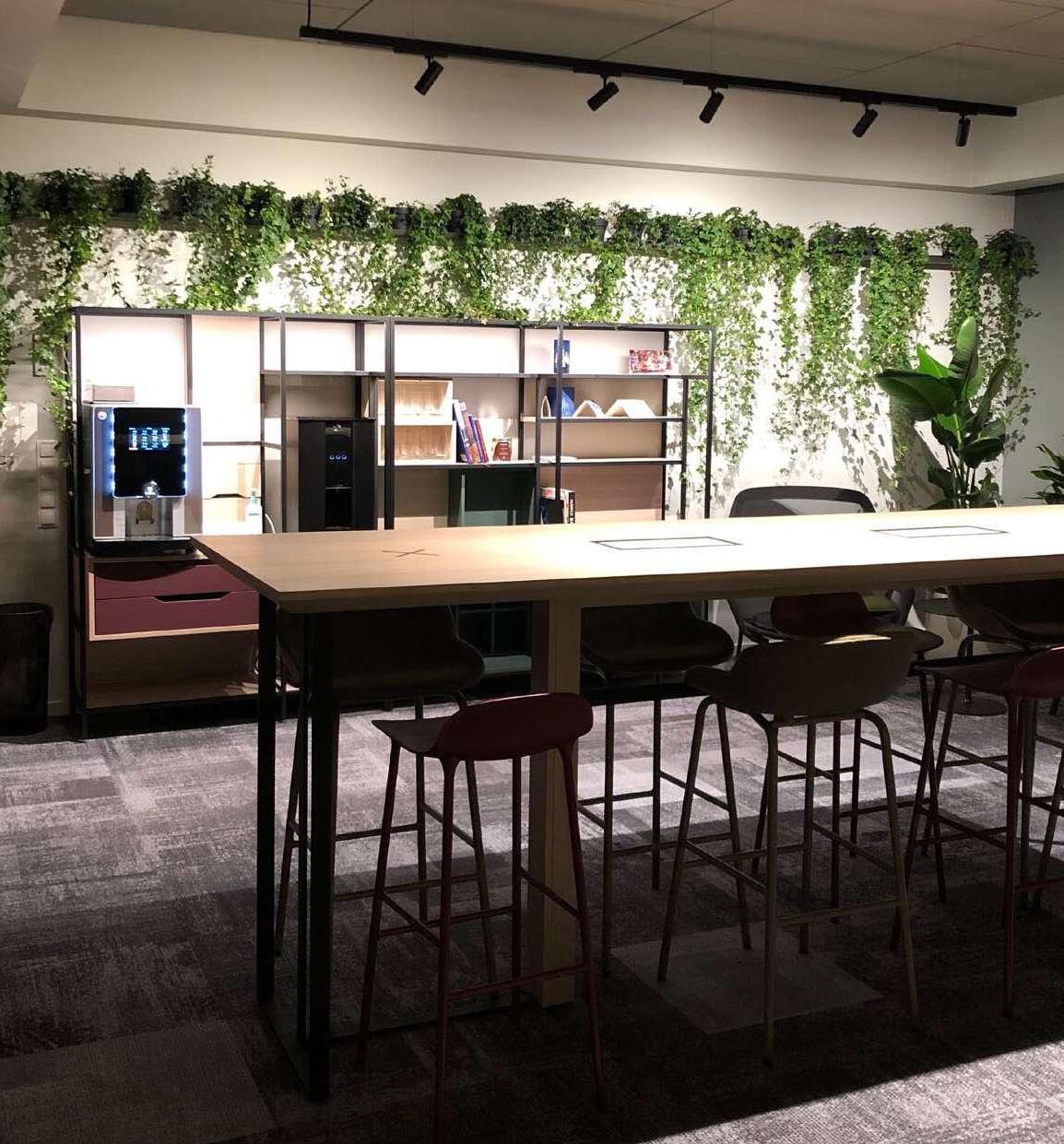
Latvia is hungry for talented individuals with unique international experience.

The average salary in Latvia is 1373 EUR gross The average salary tends to grow each year. Of course, averages are different across industries and regions. Sectors with the highest level of remuneration include IT/ Telecom, Pharmacy, Financial Services, Construction, Wholesale (representative offices).
Latvia is a small country – there are only so many people. But our people are smart and our ambition is boundless. We’re always building, creating, innovating and an extra pair of hands is never turned down. In a survey by the Latvian Chamber of Commerce, over 63% of employers have encountered issues with hiring low-skilled workers, and 74% have had trouble hiring highly skilled workers. There are opportunities for everyone!
Some particularly in-demand fields are IT, sales, and engineering. The roles can be found in a range of companies, from multinational corporations down to the local startups that are growing at a head spinning pace.
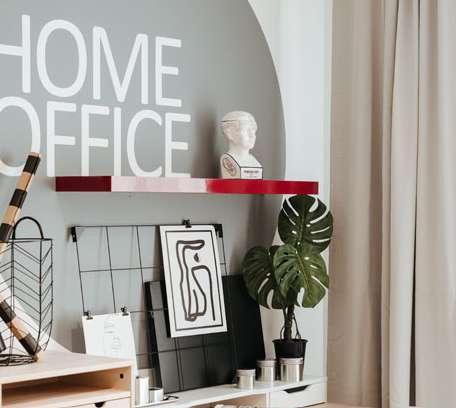
In the pre-Covid era, Rigans earned on average 12% more vs. the average of the country. However, with the option to work remotely from the seaside of Kurzeme or woods of Latgale, the region you live in is not that important of a determinent of your salary anymore.
Salaries are usually paid monthly. They are often stated in either Gross (aka Bruto) or Net (aka Neto).
Gross = The full salary before taxes
Net = The salary after taxes, which you receive in your bank account
Often “net” salary is described in Latvian as “uz rokas”, which means “on hand”. In other words – the amount of money you have to spend.
Taxes are based on a variety of factors, such as salary, how many dependants you’re responsible for, and other factors. To get an idea of your salary after taxes, enter your details in a salary calculator.
In Latvia, taxes are deducted from your salary before it is paid out to you – that way, as a salaried employee, you don’t have to worry about taxes.
Cv.lv
The biggest local job board in Latvia covering all industries
YourMove.lv
A platform connecting foreign professionals to companies in Latvia that are seeking global talent

Use it to establish a network of local professionals and follow the vacancies announced on company profiles
MeetFrank
Career app specializing in IT, software engineering, data and marketing vacancies
ABSL Latvia
A list of career pages of Business Service centres located in Latvia
Contact EURES network consultants in Latvia that specialize in supporting international job seekers
If you’re employed by a company registered in Latvia, it will be your employer’s responsibility to register you with the State Revenue Service as a taxpayer. Income and social taxes will automatically be deducted from your paycheck, so you won’t have to do any yearly taxes.
If you have income from sources that are not a local employer (ex. if you’re self-employed), it will be your responsibility to register. In that case, we recommend contacting the State Revenue Service for assistance
The taxes deducted from your salary include:
Progressive income tax: 20-23%, based on salaries up to €78 100 per year
Check the State Employment Agency’s vacancy website
Do hold on to any medical or educational receipts or any donations – you’ll be able to submit them once per year for tax rebates. There’s even an app for that! Here’s a full list of what qualifies.
Social insurance tax: 10.5% (and your employer contributes an additional 23,59% on your behalf)
More on Taxation in Latvia see here.
A variety of tax rebates are available. You’ll need to have your tax booklet submitted to the SRS, which can be done electronically here.
In case you plan to open a company in Latvia, please refer to the factsheet about registering a company in Latvia.
The basic process of establishing an LLC spans 8 steps. For a detailed description of all the activities, visit the Register of Enterprise’s homepage
Open a temporary bank account
Take into consideration that the bank will take a few days to go through your records before deciding on opening the account.
Decide on a unique name
You can see if a name has already been registered by searching for it here
Draw up founding documents
You’ll need to fill out and submit a Memorandum and Articles of Association, a folio of shareholders, provide info on the owners, signiature certification documents, etc.
Deposit the equity in your account
There is a certain type of LLCs that allow for equity of €0.01.
Ensure a legal address for the company
If the property doesn’t belong to you, you’ll need to submit consent from the property owner.
As one of ‘start-up friendly’ countries in Europe and Riga entering in Top 10 “Medium-sized European Cities of the Future” and in the “Best City for Human Capital and Lifestyle” nomination, the opportunities for growing a business in Latvia are truly endless.

Here, we’ll dive into the details of what doing business in Latvia looks like, so that you can start off on the right foot. Your success is our success – we’re rooting for you!
The country’s current business focus is on developing smart city, green tech, IT, biomedicine, smart materials & photonics, and life sciences industries. If you’re in that sphere, be sure to contact LIAA – there are entire departments dedicated to helping you!
Pay the registration fees
Registration is completed only after the Enterprise Register is able to verify that the state fee is transferred into The Treasury account See the list of fees here:
⊲ In-person at the Enterprise Register
⊲ Online at Latvija.lv
⊲ By email with electronically signed documents
⊲ By mail
All submitted documentation must be in Latvian or with a notary certified translation. We recommend working with professional consultants and lawyers to help with document preparation.
Corporate income tax: 20%
Corporate income tax in Latvia is 20%, which is below the EU average of 21.47%. It’s paid from any profit, which is paid out as dividends or for business-unrelated expenses.
Mandatory social insurance contributions (MSIC): 23.59%
On behalf of their employees, employers deduct 23.59% from employee Bruto salaries and pay them towards the mandatory social insurance contributions.
Value-added tax: 21%
VAT is charged on all transactions made over the course of doing business, with special rates for specific categories, like education, transportation, and others.
For more information on tax rates, as well as industry-specific programs that might apply to you, visit State Revenue Service homepage:
Latvia is home to a pool of highly qualified individuals
– as one of the top 10 most literate countries in the world and one of the most educated, thanks to accessible pricing, with citizen proficiency in multiple languages as the default. With comparatively lower average wages than in Western countries, Latvia’s an ideal place to build a team to scale your business.
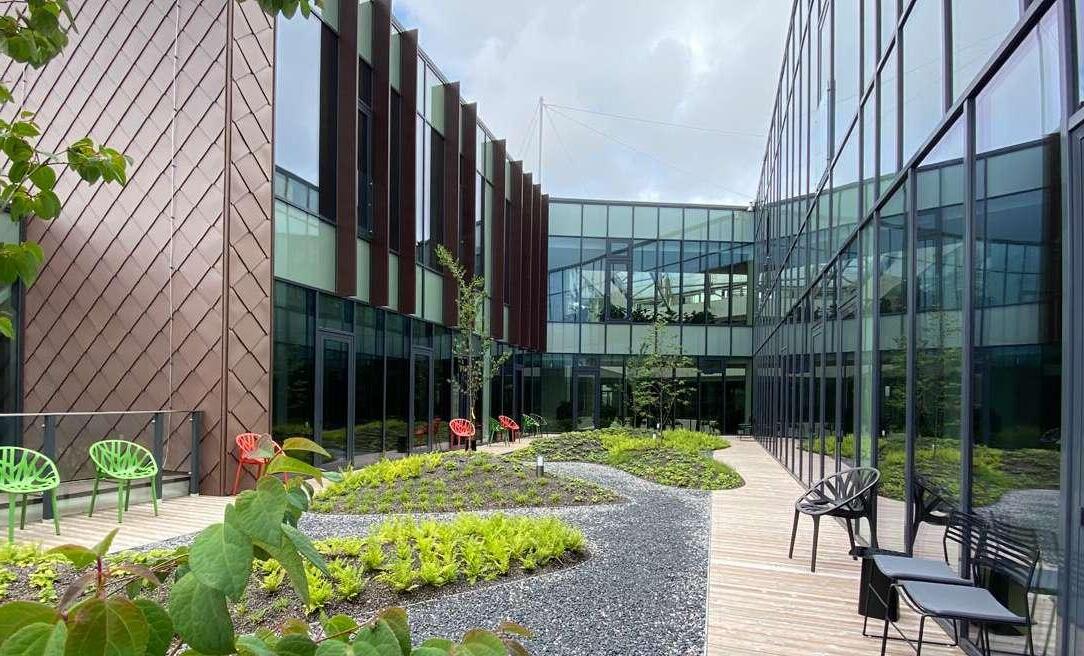
There are a ton of everyday items we bet you didn’t know are Latvian inventions. Here are just a few:
⊲ Rivets on jeans (Jacob Davis / Jākobs Jufess)
⊲ Pringles (Aleksandrs Liepa)
⊲ High-altitude fighter jets (Jānis Akermanis / John D. Akerman)
⊲ MikroTik routers (found in every country of the world)
Language:
⊲ 95% of inhabitants speak at least 2 languages – 2nd place in Europe
⊲ 65% of inhabitants speak at least 3 languages
⊲ 42% of 15-34 year olds are fully fluent in English – the highest rate in the Baltics
Education:
⊲ Latvia is 1st among OECD member countries with highest rate of female graduates – 69% of graduates are women
⊲ 58.3% women of 35-44 year olds have a higher education, above the OECD average of 50.5%
What makes Latvians excel at what they do*:
⊲ Individualism, uncertainty avoidance, long-term orientation
⊲ Strong work ethic
⊲ Latvians value competence, discipline and punctuality
⊲ Being good listeners. Unlikely to interrupt, will listen closely and give feedback only at the end
⊲ Quality of life is the sign of success and standing out from the crowd is not admirable
*According to Hofstede Insights and Richard D. Lewis’
“When Cultures Collide: Leading across cultures”
List your vacancies on one or more of the most common job sites. Take a look at our “Employment” section of this guide for a list of top sites.
If you’re looking to do business in Latvia, there are many resources dedicated to making it easier for you!
Have a look and see what might apply to you.
There are many programs that are launched throughout the year to support entrepreneurs. Check the LIAA events calendar regularly to find out and apply for them!
Latvia is home to several accelerators that can fast-track your startup’s success.
They are:
⊲ Buildit – focuses on hardware and the internet of things startups
⊲ Commercialization Reactor – focuses on deep-tech startups
⊲ Startup Wise Guys – focuses on B2B Fintech startups
The 5 SEZs in Latvia offer favourable business incentives, including:
⊲ Rebates on real estate tax
⊲ Rebates on corporate income tax
The Investment and Development Agency of Latvia (LIAA)
Offers entrepreneurs and investors guidance on business opportunities in Latvia.
The services (which, by the way, are free of charge) include:
⊲ Information on the economic and market situation
⊲ Facilitating business opportunities (location and fact-finding missions, company visits, bring investors to potential facilities sites and arrange meetings with stakeholders)
⊲ Investment incentives
⊲ Facilitated networking
⊲ Identification of best property options
⊲ Cooperation with municipalities and academia
⊲ Access to relevant government officials
⊲ Assistance with start-up procedures and investment project aftercare
The purpose of support is to promote process digitization in commercial activities and increase productivity.
The program supports such activities as:
⊲ Administrative processes
⊲ Personnel management processes
⊲ Resource management processes & etc.
Before applying for support, an initial digital maturity test must be performed to determine the necessary investments for digitalization needs, and it is necessary to receive a digital development road map issued by the European Digital Innovation Center (Latvian IT cluster).
Total amount of support is 37 500 000 EUR.
Reach out to the LIAA team for case-specific questions!
⊲ Tax relief for dividends, management fees, intellectual property payments
⊲ And more
Altum is a national finance institution that offers various programs and support instruments for entrepreneurs:
⊲ Loan for entrepreneurs
⊲ Mezzanine loan
⊲ Credit Guarantee
⊲ Loans for companies’ energy efficiency and sustainability
⊲ Export credit guarantee
⊲ Support of the consequences of war
⊲ Eenergy efficiency loan with capital discount
Rural Support Service of Latvia (RSS) is a state administration institution, responsible for implementation of unified state and European Union (EU) support policy in the sector of agriculture, forestry, fisheries and rural development.
Read more on StartupLatvia – Acceleration funds:
Visit each SEZ’s website for more information:
⊲ Liepaja SEZ
⊲ Rezekne SEZ
⊲ Riga Free port
⊲ Ventspils Free port
⊲ Latgale SEZ
Read more about ALTUM programmes here:
Read more about RSS support programmes here:
Read more on the Business.gov.lv website:
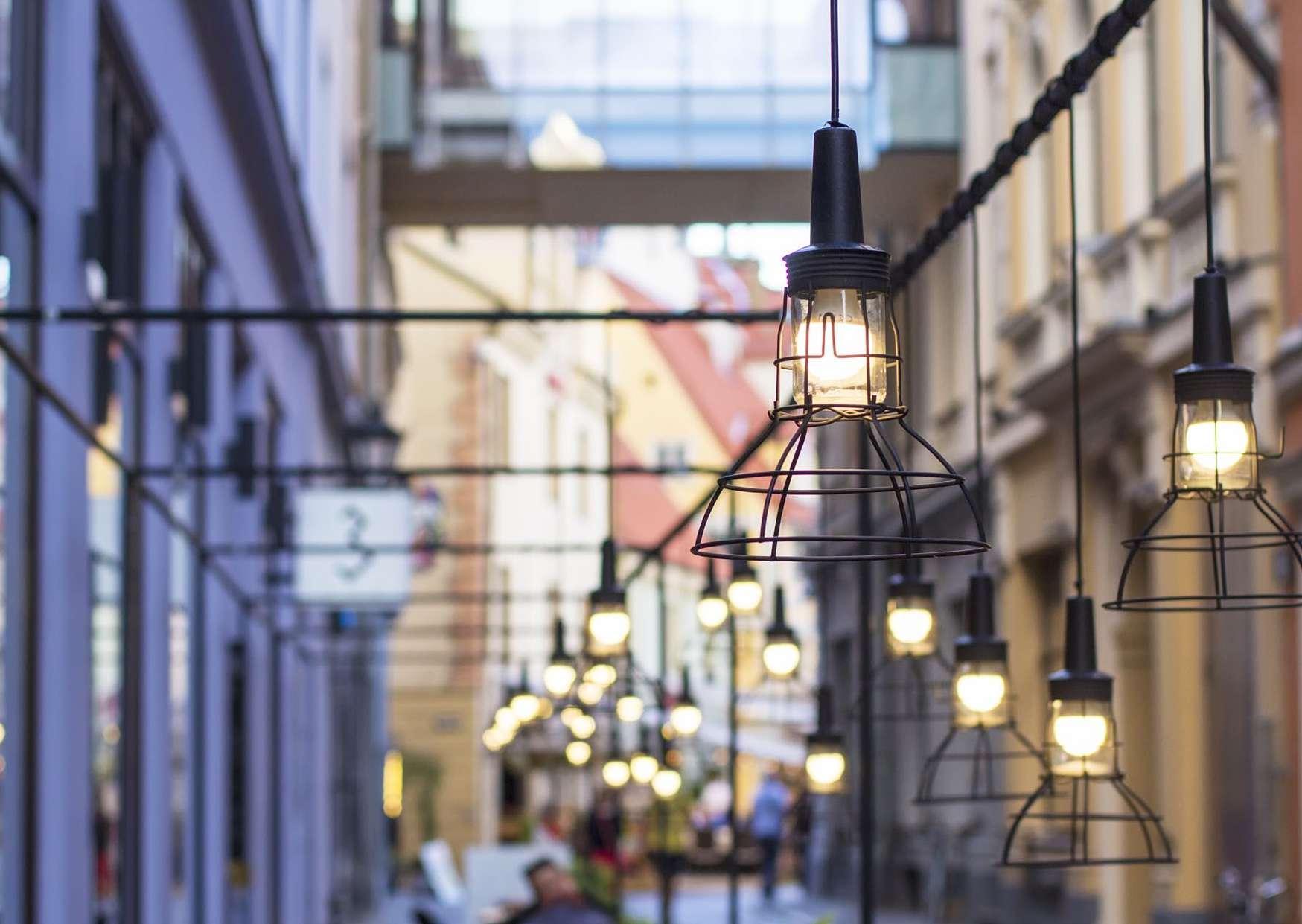
The cost of living in Latvia is relatively low when compared to other European cities. The balance of cost, opportunity, and lifestyle is what ultimately draws many expats to Latvia.
Monthly rent of a 1-bedroom apartment 1 public transit ride
Monthly utilities
Utilities: €320.25
Connectivity
High-speed home internet: €18.18
Unlimited mobile phone plan: €16
Eating out
Cappuccino: €2.70
3-course meal at a nice restaurant: €52
A beer: €4.00
Health & well-being
A doctor’s visit in a privately owned health institution: €40-50
Monthly gym subscription: €40
New haircut: €30-40
Other average costs Numbeo.com
Outside of Riga, the cost of living can vary substantially. In most cases, housing, eating out, public transit, and local produce will be cheaper. That being said, utilities may be higher, depending on the heating and water infrastructure.
What linguists want you to know
Sveiki – Hi Labdien – Good day
Paldies – Thank you
Kā tev iet? – How are you?
Visu labu – All the best
Jā – Yes
Nē – No
Any Latvian would be thrilled to have another Latvian-speaker in the world. So be sure to know that when you decide to learn the language, you’ll have an additional 2 million cheerleaders supporting you!
Some language centers specialize in teaching Latvian to foreigners. Find a list here.
People relocating to Latvia are offered free Latvian language lessons. Classes fill up quickly, so make sure to apply early!
⊲ For people declared in Riga
⊲ For people with a residence permit
Language is a major factor to feeling settled in Latvia. We’re a small country, and very proud of our language – Latvian, which is spoken nowhere else in the world. Locals will love it if you try to speak to them in their own language, even if you’re not that good yet. It’s the thought that counts!
That being said, Latvia is a very multicultural place, with different cultures and languages living side by side.
Latvian is part of the Indo-European family tree, which has its roots in Ancient Sanskrit!
With 33 letters in the alphabet, 7 grammatical cases, and 6 declensions, Latvian is considered a difficult language to learn. However, with the support of native speakers, local immersion and additional Latvian lessons, the language will come naturally to you.
Latvian is a phonetic language, meaning what the word looks like is how it’s pronounced. That means that a ll you have to do is get the letter pronunciation down, and you’ll be off to a good start!
What Latvians want you to know
Daba – nature, part of the Latvian soul
Dziesma – song, the great equalizer and unifier Klusums – silence, and a good friend of Latvian introverts What you really need to know
Čau – Hey! Used among friends
Normāli – Fine, the most common response to “how are you”
There are several online resources that can help you with your journey.
⊲ Events and courses in Integration.lv – the events section keeps an updated record of language-based activities for foreigners, like free classes and even improv events!
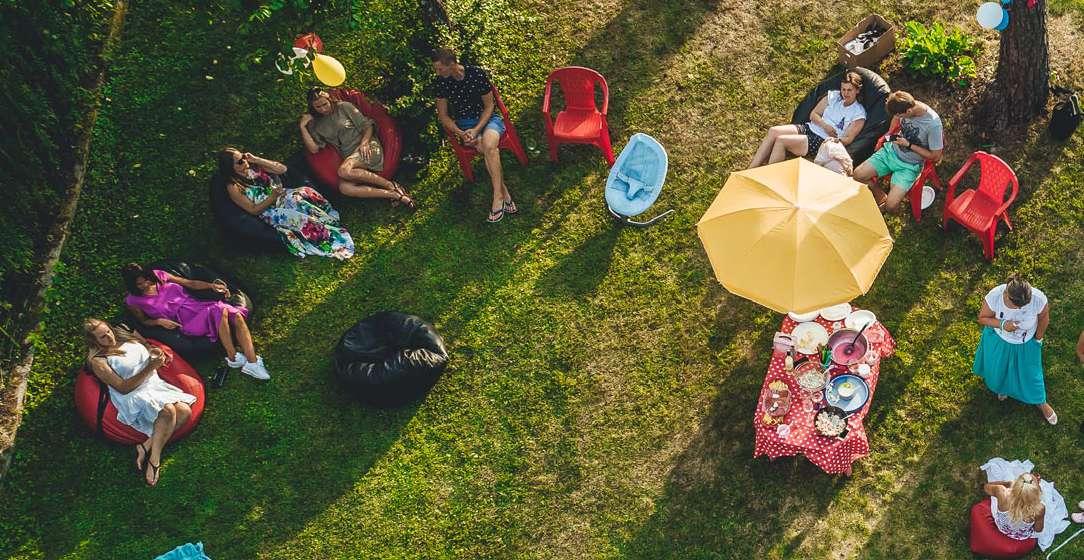
⊲ e-Laipa – developing vocabulary for A1, A2, and B1 levels
⊲ Loescen – learn basic phrases
⊲ Self-assessment – a tool to understand what your level of knowledge is
⊲ Latvian Language agency – a collection of resources for those who already have basic knowledge of the language
⊲ Mondly – a convenient tool to train your language skills on the go
The country boasts extensive fixed very high-capacity network (VHCN) coverage (91%), exceeding the EU average (70%) (European Commission, 2022)
99% of the country is covered in a speedy and stable 4G connection. When it comes to internet speed, Latvia is ranked 36th in the world! For you, that means a fast and affordable connection anywhere and everywhere, be it streaming your favorite movie from the comfort of your couch, working from the beach on a sizzling summer day, or listening to your favorite podcast while foraging for mushrooms in a remote corner of an untouched forest.
In Latvia, most homes don’t have a stationary phone – almost everyone relies on mobile phones for communicating.
The most common plans are:
⊲ Monthly plans – €27/month on average for unlimited plans, must have a contract signed. Go to one of the mobile operators’ salons to set up your connection.
The average mobile internet speed is 50.07Mbps (2022)
⊲ Pay-as-you-go – You can get a SIM card at corner stores like Narvessen and grocery stores like Rimi, ask for “Zelta Zivtiņa”, “LMT Karte”, or another brand’s SIM card.
There are thousands of public wireless internet points available in Latvia. In Riga alone, users have access to nearly 2,200 free WiFi points!
Home internet is relatively cheap at €20 per month on average. With most homes in Riga qualified for optical cable connections, it makes for super fast internet surfing.
Top mobile operators:
⊲ LMT
⊲ Tele2
⊲ Bite
Top internet providers:

⊲ Tet
⊲ Baltcom
⊲ LMT
Latvia’s a relatively small place, which makes it easy to get around! Riga is home to a far-reaching public transit system, that’s supplemented with the rise of various micro-mobility services. Getting to the countryside and other cities is easily accessible via frequent and affordable trains, as well as buses that can bring you to the edge of Latvia and beyond.
The most efficient ways of getting around Latvia using public transit is via train or bus. There are 7 train lines that start in Riga and extend to the outskirts of the country, while there are countless bus routes that will take you to and from wherever you have to go, even abroad!
It’s said that bus rides give you the best insight into Latvian rural life – never-ending woods and meadows outside the window, countryside hits blasting from the driver’s radio, and the elderly traveling home with baskets full of treasures purchased in the central market – an interesting journey is guaranteed!

When travelling by train, pay attention to the picturesque train stations! Ķemeri, Stende, Sigulda, Dubulti, Gulbene to name a few are worth a visit due to their history and architecture.
Rail
Local
⊲ using the Trains in Latvia or Mobilly apps
⊲ at station ticket offices
⊲ onboard the train from the ticket inspector
Traveling abroad
The easiest way to look up public transport both in Riga and in other cities in Latvia is through the 1188.lv website. It will also show you what the most convenient route for your trip is, taking into consideration all of the possible modes of transit.
Keep your ticket at hand – it will have to be presented either to the bus driver when you get on, or to the inspector in the train after you’ve boarded.
Currently, one can reach Valga in Estonia and Vilnius in Lithuania by train. The Rail Baltica project (2025) will open new routes. train.
Local
⊲ using the Bezrindas or Mobilly apps

⊲ at bus station ticket desks or ticket machines
⊲ last-minute from the bus driver
Traveling abroad
Safe and comfortable journeys with coach companies such as Ecolines, LuxExpress, Eurolines, Flixbus will take you nearby to Klaipeda, Siauliai, Tartu and Tallinn in the neighbouring countries and as far as Berlin, Prague, Warsaw and other European destinations
In Riga, public transport services are provided by buses, trams, trolley-buses, and minibuses, all of which run approximately between 5am and midnight.
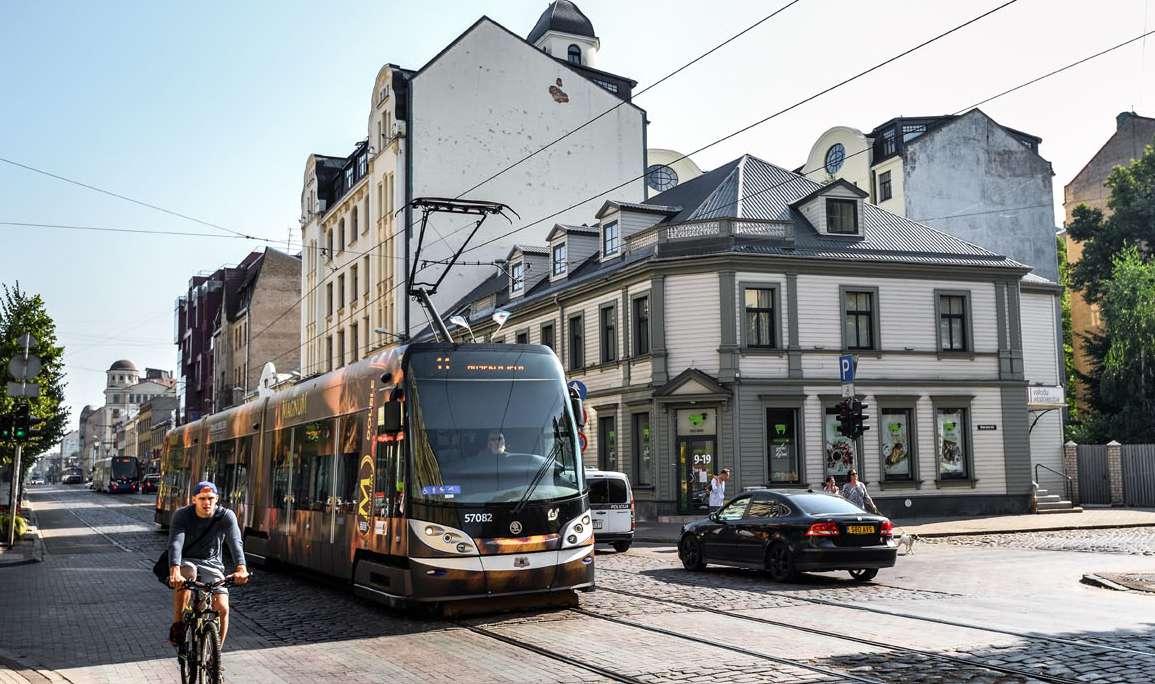
The cost of a ride on any of them is €1.50 if purchased in advance. Discounts are available for students and seniors.
Night buses may drive some routes during the night-time hours on weekends.
Where to get tickets:
⊲ Narvesen and other corner stores
⊲ From ticket machines in some bus stops and in some trams
⊲ From Rīgas Satiksme offices
⊲ Purchasing code ticket on several apps (Rīgas Satiksme app, Mobilly, Narvesen)
Helpful apps:
⊲ You can plan your route easily on the Rīgas Satiksme website
⊲ Trafi can help you find your closest bus/tram stop and the
Each major town in Latvia has its own local public transport system. Tickets can be purchased from the driver (bring cash!), but for bigger cities, a network of ticket outlets will be available.
Check the city’s website for more information!
I f public transport is not your cup of tea, there are various other ways you can get around town, including taxis, micro-mobility services like electric scooters, ride-hailing, and car-sharing apps.
Car sharing
⊲ CarGuru
⊲ CityBee
⊲ Fiqsy
⊲ OX Drive (Tesla car sharing)
Scooters
⊲ Bolt
⊲ Fiqsy
⊲ CityBee
⊲ Atom
Taxis
⊲ Baltic Taxi
⊲ Red Cab
⊲ TaksiLV
Ride-hailing
⊲ Bolt
All licenced cabs have special yellow number plates If you’re using a traditional, non-app service provider, insist on the meter being turned on.
For shorter journeys around the centre of town, the cost shouldn’t exceed €7.
Driving in Latvia is done on the right side of the road. The default speed limits are 50 km/h in urban areas and 90 km/h on highways. Speeding is monitored both by stationary speed cameras and by the police.

Other important rules:
The minimum age for driving a car is 18
Everyone in the car has to fasten their seatbelt (including the passengers in the back seat)
The permissible alcohol level in the blood is up to 0.5 ‰, and up to 0,2‰ for people having a driving licence for less than 2 years. The police often monitor drivers for alcohol use
Winter tires are compulsory between December 1 and March 1
EU, EEA and Swiss citizens
Your driver’s license will be valid in Latvia without taking any additional tests.
Non-EU citizens
If you are staying in Latvia for more than a year, you’ll need to exchange your driver’s license to a local one by passing a medical examination and a driving test. Until then, you can drive the vehicle categories that are indicated in your licence (or its accompanying document). Without a category indication, you can only drive B category vehicles.
If your license isn’t in the Latin alphabet, you’ll need to have its notarised translation to Latvian.
Read more about obtaining and exchanging your driver’s license license here:
Most parking in the center of Riga is paid and costs around €2.00-5.00 an hour. Paid parking is indicated by white lines marking the parking space and a parking meter road sign at the respective intersection.
The easiest way to find a parking area and pay the fee is using the Mobilly app. Alternatively, you can use non-cash parking meters on the street.
NB! UK citizens can exchange their driving license without taking additional exams.

If you come to Latvia with your car, you will have to register it within 3 months. You can do the registration in any of the 26 CSDD customer service centers in Latvia.

When a vehicle is registered, it will get a national registration number and a vehicle registration certificate. See the complete list of documents needed for registration & fees applicable for the process here
OCTA or Motor Vehicle Owners’ Compulsory
3rd Party Liability insurance (MTPL)
Mandatory for all vehicles
The MTPL policy (OCTA in Latvian) compensates losses that you, the driver, has inflicted on others – vehicles, cyclists, pedestrians, passengers and their property.
CASCO
Not mandatory, but can be very useful
Additional insurance covering accidental damage to your vehicle. That could be theft, scratches, broken windshields, etc.
Contact an insurance provider for a quote (our health insurance section has a list).
Latvia’s healthcare system is a mix of private and publicly funded services. Permanent residence permit holders will have access to publicly funded services, though you may encounter a waiting line. Most paid services, however, are available to everyone, with little-to-no waiting time and at an affordable price.
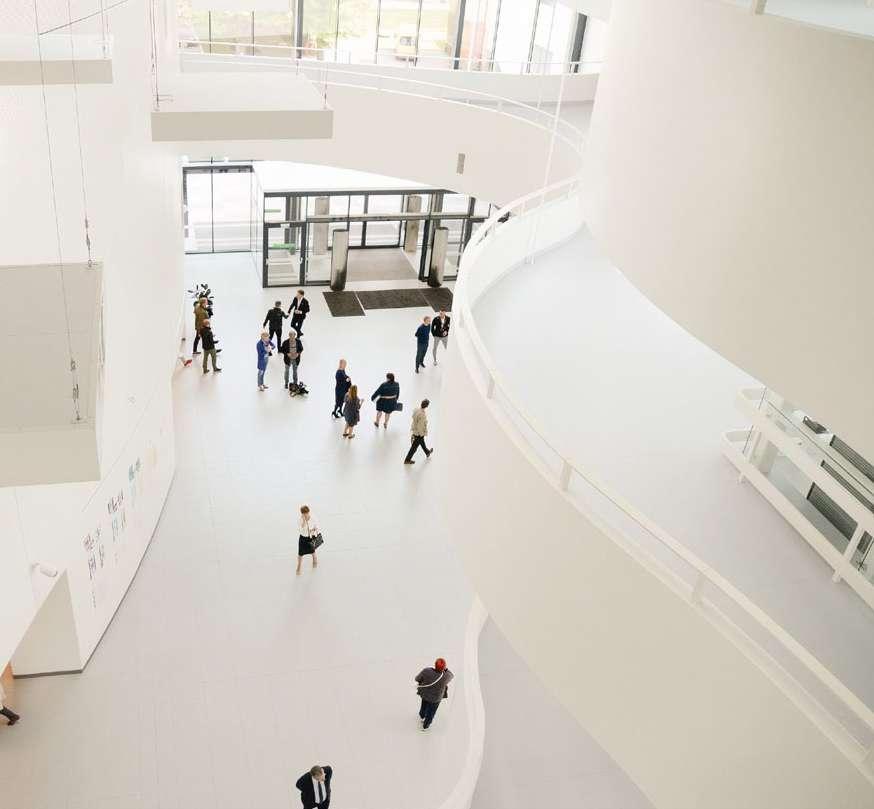
Most Latvians are registered with a general practitioner (or what Latvians call “ģimenes ārsts” – a family doctor). This is the first point of contact for everything health-related, and the GPs will then direct their patient to specialists as necessary. These visits are state-subsidized, with patients paying just over €1 per visit. A list of healthcare organizations is available here.
Anyone can visit specialist doctors by signing up and paying the full price. The cost is usually between €20-60.
⊲ Permanent residence holders: have the opportunity to apply to a GP and use their services. Find one near you and call them about joining their practice.
Useful contacts
113 or 112
Call for emergency care and an ambulance
+371 66016001
Consult the public GP phone line if you happen to have a simple health problem and wish to get medical advice outside the working hours of your own GP. Available from 17:00-8:00 on workdays, and 24h on weekends.
⊲ Temporary residence holders: visit doctors when needed by paying full price, and offset the costs with your mandatory health insurance.
Acute and emergency healthcare services are provided in specialized trauma points, as well as in most large hospitals and some private clinics.
Where to go for emergency help
⊲ Paula Stradiņa klīniskā universitātes slimnīca
⊲ Rīgas Austrumu klīniskā universitātes slimnīca (“Gaiļezers”)
⊲ Rīgas 2.slimnīca
⊲ Traumatoloģijas un ortopēdijas slimnīca
⊲ [Children’s] Bērnu klīniskā universitātes slimnīca
⊲ [Pregnancy] Rīgas Dzemdību nams
⊲ [Psychiatric] Rīgas psihiatrijas un narkoloģijas centrs
Make sure to bring identification and your health insurance with you!
Major regional hospitals will offer 24/7 emergency services. Find a list here:
Private health insurance
Health insurance is a mandatory document in order to obtain a temporary residence permit. As a minimum, this will give you access to emergency medical care, treatment for critical conditions, and transportation either to a different health institution or back to your country of origin in the event of severe illness or death.
Most major insurance companies will offer this basic package, but you can definitely upgrade to increase your healthcare coverage. Take a look at their websites to see what they offer!
Top Insurance companies:
⊲ BTA
⊲ BALTA
⊲ Balcia
⊲ ERGO
⊲ IF

European Health Insurance Card (EHIC)
EU citizens and foreigners with permanent residence permits can apply for the EHIC to get access to statefunded healthcare while temporarily in the EU, EEA countries, and Switzerland, at the same costs of locals.
Where can I use EHIC in Latvia?
⊲ Trauma points
⊲ Hospital admissions departments
⊲ In an emergency case – State Emergency Medical Service (call 113).
EHIC is not an alternative to travel insurance. It does not cover private healthcare or costs such as a return flight to your home country or lost/ stolen property.
Get more info here:
Latvia has the the second highest spending on culture in the EU*, and you can definitely feel it in terms of both volume of events and financial accessibility.
The country is a hotspot for cultural activities, ranging from classical and ethnographic to contemporary and avant garde. You won’t have trouble finding something you’ll love. On the contrary, the biggest problem you’ll run into is the agony of choice.
% of total government expenditure (Eurostat, 2021)
⊲ 92% of inhabitants in Latvia claim they attend cultural events and venues, either concerts, museums, galleries, cinema, festivals or other cultural occurrences.
⊲ The greatest culture consumption is observed among youngsters – 15 to 30-year-olds
⊲ Latvia has a network of 120 music schools located not just in the cities but also in the countryside, and 1 in 12 children attend those.
⊲ The latest Latvian Song and Dance festival (2023) gathered a record number of participants totalling up to 40 560 including choir singers, dancers, folk musicians, orchestra members. The participant age ranges from 1-year-olds to 96-year-old
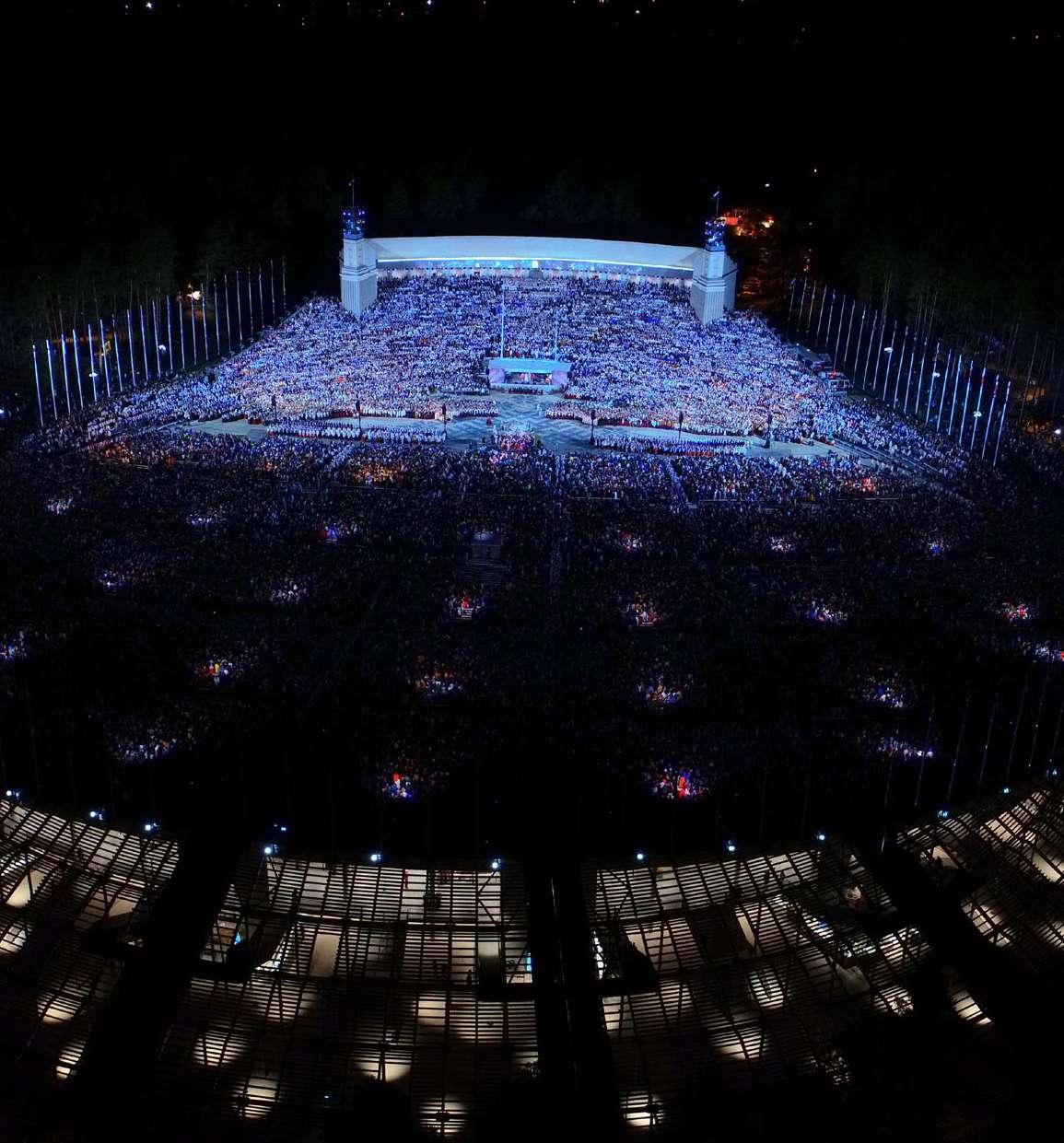
One thing you’ll find in common with most Latvians is a deep appreciation for culture.
⊲ 3 professional choirs
⊲ 4 professional symphonic orchestras
Latvia is internationally famous for its deep-rooted choral music traditions and many excellent classical musicians, such as:
Andris Nelsons, classical conductor, 3-time Grammy winner
Pēteris Vasks, classical composer, Grammy award nominee
Iveta Apkalna, one of the world’s leading organists
Many Latvian amateur choirs regularly compete in international competitions where they’re always among the top candidates for main prizes.
⊲ 8 state co-funded theatres
⊲ 32% of the population attend the theatre at least once a year

Theatre is one of the most popular forms of performance art in Latvia, and Latvians are keen theatre lovers. Going to a play is a ritual that involves dress-up, visiting the theatre’s café before the play, and bringing flowers to beloved actors who often have a status of local influencers. The Latvian theatre scene is the Latvian Hollywood
While most plays are held in Latvian, the Riga Russian Theater, founded in 1883, offers content to a Russian-speaking audience, and a few theatres provide English subtitles for some plays as well.
Closely knit to the traditions of the Russian school of classical ballet, Latvian ballet has given the world such stars as Mikhail Baryshnikov, Maris Liepa, and Alexander Godunov
The Latvian National Ballet, born in 1922, today builds its repertoire on the gems of classical ballet and contemporary productions. The Ballet has collaborated with world-renowned choreographers such as Boris Eifman, Krzyzstof Pastor, and more.
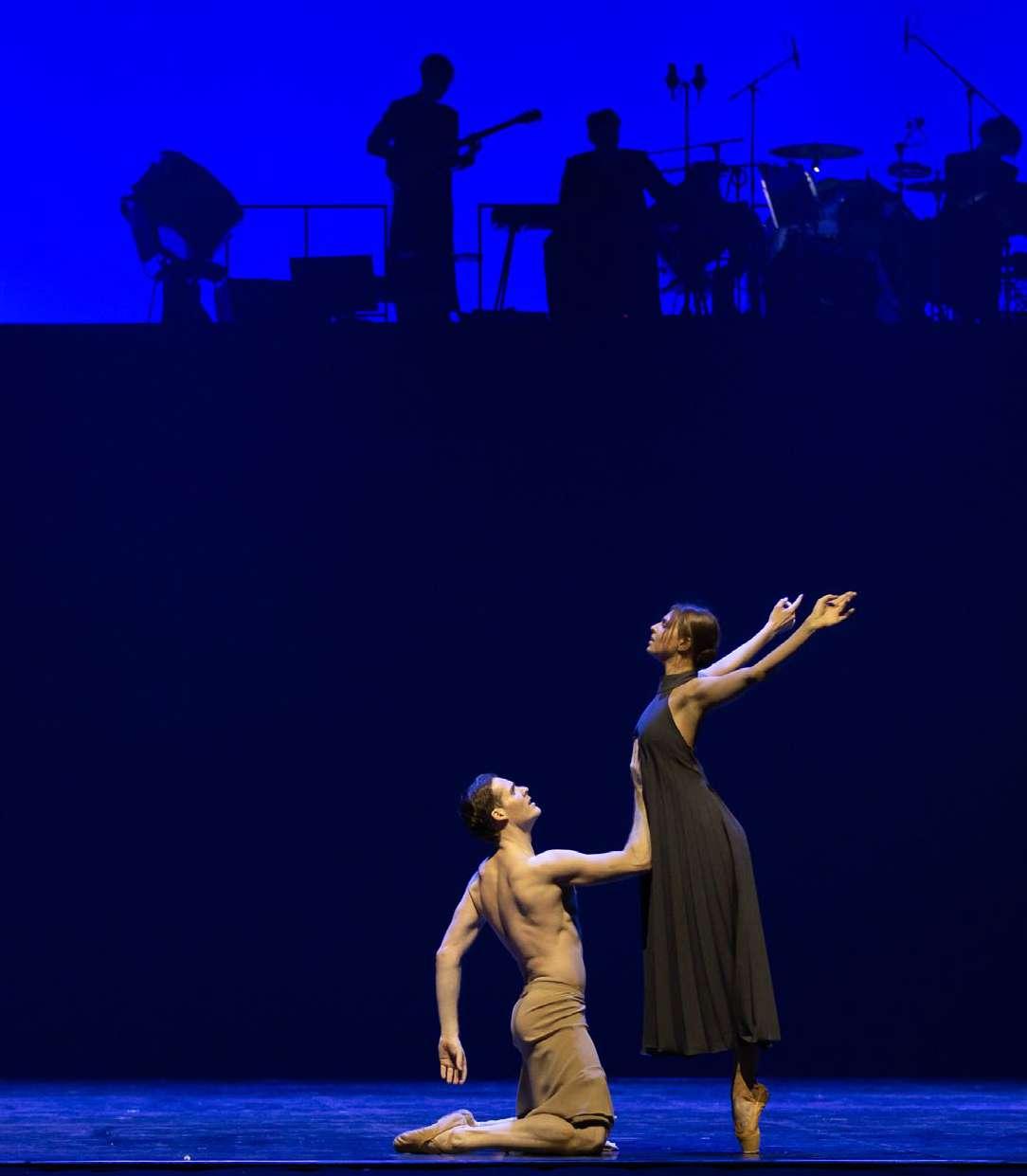
For a population of less than 2M, Latvia can be proud of many great opera voices that often steal the global spotlight.
Elina Garanca, Aleksandrs Antonenko, Marina Rebeka, Inese Galante, and Kristine Opolais are just a few examples of the brilliance that shines on stages of New York’s Metropolitan Opera, Opera National de Paris, London’s Royal Opera House, the Vienna State Opera, and more world-class opera houses.
Opera performances have both Latvian and English surtitles for a more enjoyable experience.
Soviet Latvian ballet dancer Mikhail Baryshnikov is considered one of the greatest dancers of our time. He commenced a spectacular dancer career with such prominent theatres as American Ballet Theatre and New York City Ballet. During the past few years Rigans have had the unique opportunity to experience two theatre production premiers starring Baryshnikov –The White Helicopter (2019) & Brodsky / Baryshnikov (2015).
The world-renowned composer Richard Wagner lived and worked in Riga from 1837 to 1839. It can rightfully be said that Wagner’s conducting style, as well as opera Rienzi, genuinely belong to Riga.
The Latvian visual art scene is Nordic and poetic, often executed in refined techniques, paying a lot of attention to an artwork’s formal and esthetic aspects.
Well-known artists include Vilhelms Purvitis, Janis Rozentals, Vija Celmins, and more.
Visiting an art museum in Latvia is relatively cheap. The local art scene has a lot to offer: Latvian National Museum of Art, Art Museum Riga BOURSE, Mark Rothko Art Center, and many independent galleries.
The Latvian National Museum of Art collection comprises more than 52,000 works by Baltic and Russian visual artists.

Latvia has a lively local contemporary music scene –performances in local pubs and clubs, open-air concerts in forests, by the rivers, or even on lakes.
International musicians often include Riga in their world tours. Venues such as Arena Riga, Mežaparks Great Bandstand, and Palladium Riga often welcome world-class bands and performers.
The annual Positivus Festival is the largest music and arts festival in the Baltics, taking place since 2007. For the last few years, it has gathered around 30,000 people each year, and in 2012 it won the “Best European Festival” award from the British Festival Guide.
One of the most significant artists of his generation, Mark Rothko, associated with the American Abstract Expressionist movement of art, was born in Latvia, where he spent the first 10 years of his life.
Concert halls “Latvija”, “Cēsis” and “Lielais dzintars”, Latgale embassy “Gors” and Dzintari concert hall
– every concert hall of the regional network is an artwork and buzzing hub itself combining excellent architecture, dazzling concerts and plays, as well as comfortable cinemas and exhibition spaces.
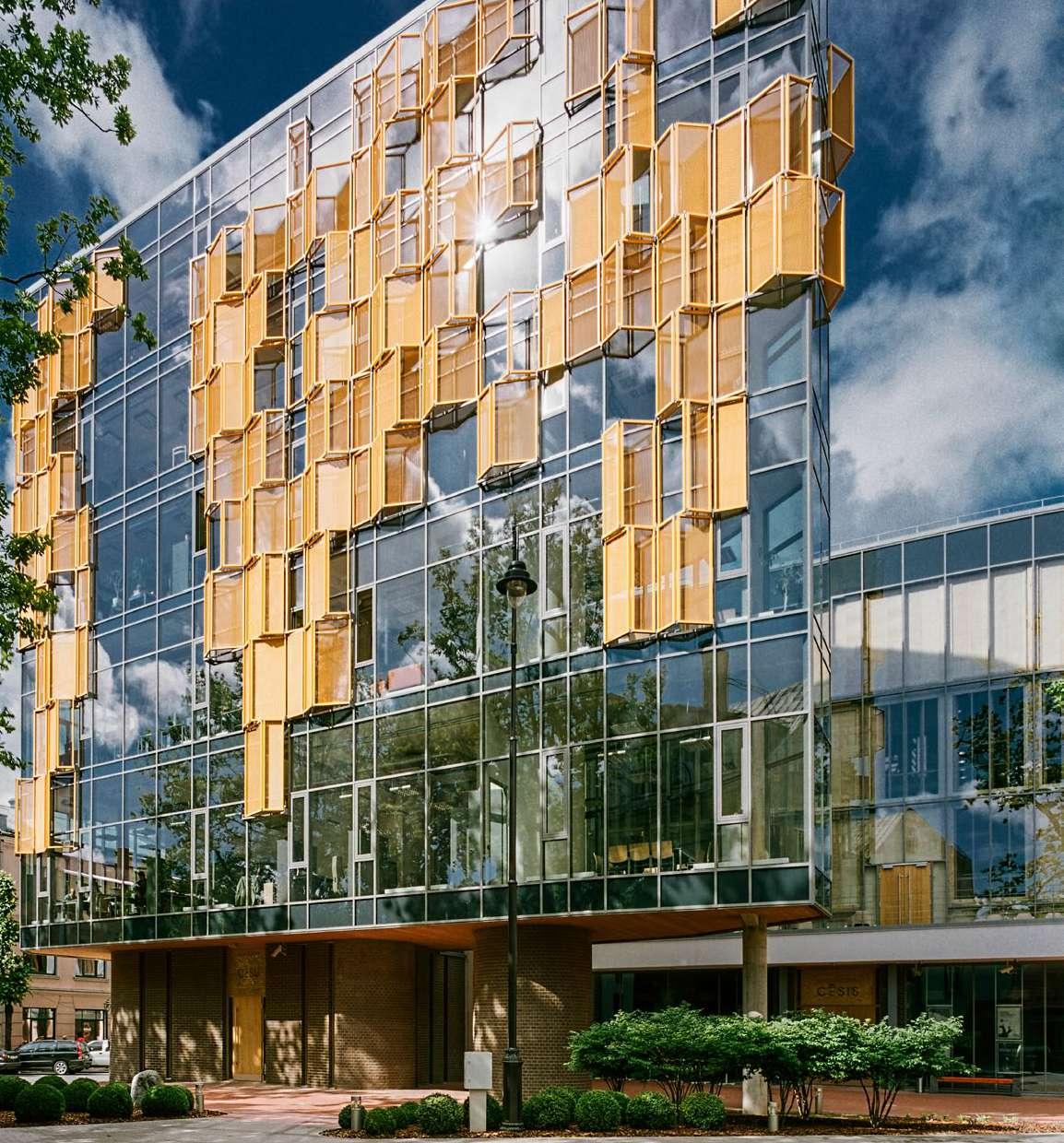
Find tickets:
⊲ www.bilesuparadize.lv
⊲ www.bilesuserviss.lv
⊲ www.kurpes.lv
Most events have corresponding Facebook events, and many Latvians find out about the hottest events on Facebook. Make sure to check out the events page to see what’s on!
Latvians know that a summer must-do is visiting at least one zaļumballe outside the capital city – a big outdoor dance party, usually accompanied by a local village band that keeps playing until the last dancers go home in the early morning light.
Latvia has a rich culture, with many ancient traditions still kept alive by enthusiastic locals. These traditions stand out among other cultural events, as they’re unique to Latvia.

These mind-blowing performances are made up of amateur choirs, folk dancing groups, folklorists, and more. Anyone can participate, including you – all you need to do is join a community in your municipality.
Every 5 years, over 40,000 performers come together in Riga to participate in this celebration of Latvian culture. Singers, dancers, and musicians from around the country perform in massive-scale concerts that can be attended in-person. This UNESCO-recognized event takes over the city for the week that it runs, and is certainly a sight to behold.
Jāņi is the most anticipated celebration of the year, happening from 23rd til 24th of June. On this day, the Latvians honour their pagan roots. It originated as an ancient fertility festival celebrated after sowing the crops and before gathering harvest. Locals make flower and oak leaf crowns, light bonfires, and sing and dance throughout the night. It is so ingrained in local culture that both the 23rd and 24th are national holidays!
May 22 is the day to celebrate all of the names that don’t have a dedicated name day.
Each Latvian name is marked on a day in the calendar along with a few others, and that day is their name day! It’s celebrated almost to the same extent that a birthday is – with flowers, cake, and congratulations. Latvian’s won’t say no to another reason to celebrate.
A community-wide event where extended families gather to tend their family graves and show respect to their ancestors. What might initially seem peculiar, it’s a light-hearted and eagerly-awaited yearly event. These usually happen on summer weekends, with families dressing up, and adorning family gravesites with flowers and candles. A priest gives a sermon, and local musicians perform afterward. These festivals differ from region to region but Latgale is most known for their celebratory festivals.
Hockey is the main and national sport in Latvia. Talented players appear every year, and a fair few of them have made it to the world’s most prominent hockey leagues, including the hockey mecca that is the NHL.

Basketball has always been a big part of sports culture in Latvia. Each town has its own open-air street basketball field filled with youngsters playing the game on warm summer evenings. Also, the abbreviation K.P.* doesn’t require additional explanation in most cases.
Despite Latvia’s northern climate and history, football has long since been a part of the country’s sporting culture. While it isn’t the most widely watched sport in Latvia, it does attract many spectators when the national team competes in international tournaments.
Our teams might not always win but for us they are always the champions! For a country of just around 2 million people we definitely punch above our weight on the world’s stage.
Latvians have managed to pioneer a few important moments in sport history: the national ice hockey team achieved a milestone by securing a bronze medal in the Ice Hockey World Championship in 2023, marking their first such achievement. Additionally, BMX racer Māris Štrombergs made history as the first-ever Olympic champion in his sport.
Latvians, possibly, are the best sports fans in the world. Well-organised, dressed and painted in the colours of the Latvian flag, they are visible and audible wherever they go, always ready to lift the mood of everyone around them.
Skeleton, bobsleigh and luge are a matter of great pride in Latvia. Martins Dukurs (skeleton) has been at the top of the game for quite a few years, with only a few others who can compete with him worldwide.
The same goes with bobsleigh and Oskars Melnbārdis’ team and many other young talents arising each year.
Get to know about Latvian achievements in other sports here:
To say that Latvia boasts pristine nature is no exaggeration! With 51% of the country covered by forests, nearly 500km of white sandy beach coastline, and untouched nature just a 20 min drive from Riga’s center, nature is at your fingertips and open to be explored.
You can take it upon yourself to explore nature with forest hikes and seaside walks. Or you can team up with enthusiasts for more specific interests, like bird-watching, fishing, or hunting. Get to know the jewels from each region, and start planning your nature getaways in Latvia by scanning through a more detailed list of options here
Guided hiking, SUP board and paddling tours with fun additions are organized by some organizations such as Movement spontaneous, Purvu bridēji, Hiking in Latvia, Lūzumpunkts, Piedzīvojuma gars and others.
Latvians like to put nature everywhere – forests are Latvian organic food shops where they pick berries and mushrooms and gather teas and herbs. When they’re angry they say “Ej dillēs! ” or “Ej bekot ” which literally means “Go to dill!” or “Go pick mushrooms!”.
There are many unique ways to experience nature in Latvia, here are just a few.

Take a Stand up Paddling tour in one of our many bogs for a unique experience. Especially at dawn!
Attend a nighttime concert on a lake – simply rent a boat on the designated lake and enjoy the atmosphere.
Enjoy one of the barefoot forest trails for a different kind of forest experience – fun for the whole family!
Pre-school
⊲ Age: 1.5-7
⊲ Kindergartens or pre-primary classes at general education institutions, e.g. schools
⊲ Compulsory at age of 5 and 6
There are both public and private pre-schools available for kids starting from 1.5 years old. Public kindergartens have low costs, and thus have long waiting lines. But don’t worry if you haven’t managed to apply in time! There are a bunch of private kindergartens that the municipality has a contract with – the city council will cover a share of monthly costs incurred by the participation fee so that your kid can attend the private kindergarten.
Basic education
⊲ Age: 7-16
⊲ Schools
⊲ Compulsory from age of 7
Public Parents only cover the cost of meals (€2-3)
Secondary education
⊲ Age: 16 and up, depending on the programme
⊲ Schools or vocational education institutions
⊲ Not compulsory
Private €450 monthly, covering both attendance and meals
Application
⊲ Riga: Online www.eriga.lv
Both public and private education options are available at every level. School traditionally starts on September 1st, when parents are given the day off to take their kids to school, and kids usually go in with flowers for their teacher.
Higher education
⊲ Age: 19 and up, depending on the programme
⊲ Higher education institutions
⊲ Other municipalities: www.epakalpojumi.lv or visit the homepage of the municipality and get in touch directly with the Education department

Public schools implement the government-mandated education system where classroom sizes are up to 30 pupils. There are also quite a few private international schools in Riga, some of which also offer the International Baccalaureate programme. Additionally, there are state-funded ethnic minority schools in Latvia where part of the language of instruction is in Russian, Ukrainian, Belarusian, Polish, etc.
While your children are welcome at public schools, if there is too much of a language barrier, they may benefit more from attending a private, international school.
Documents needed
Public schools
⊲ Riga
⊲ Other regions: visit your municipality’s Education department’s website
☑ Application (a form will be provided in the school)
☑ Description of previous study experience and grades
☑ Child’s medical history
Vocational education is an option for secondary school, where pupils are given practical and theoretical preparation for work in a particular profession. Many programs offer students a practical basis for the highly sought-after STEM-related higher education programs in Latvia.
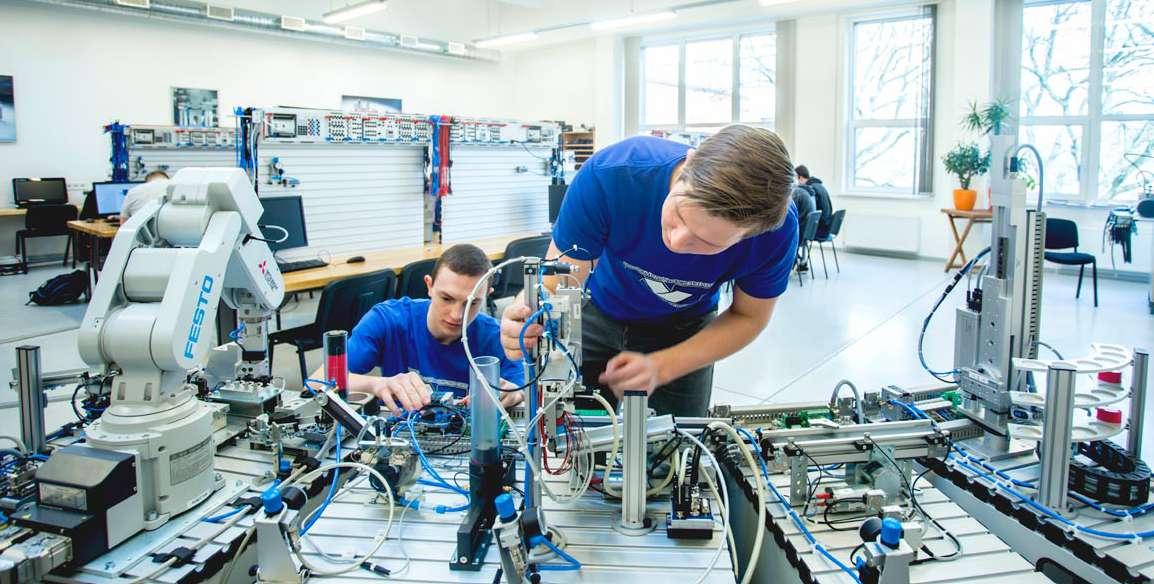
Top 3 vocational schools according to evaluation of employers in Latvia:
International schools
⊲ International School of Latvia (IB program)
⊲ International School of Riga (IB program)

⊲ École Française Jules Verne de Riga
⊲ Private German International School
– DEUTSCHE SCHULE RIGA
⊲ Exupery International School
⊲ King’s College Latvia
⊲ Municipality-subsidized ethnic minority schools
Requirments are school-specific, check out the homepage for more information.
⊲ Riga Technical college
⊲ Riga Technical school of Tourism and Creative industries
⊲ Riga Trade vocational secondary school
Programs in vocational schools are usually conducted in Latvian.
There are 6 universities and 21 academies offering wide-ranging higher education in Latvia. While humanitarian studies, arts and music studies are internationally recognized and very affordable, the future estimates show that most highly sought-after specialists will be the graduates of STEM programs.
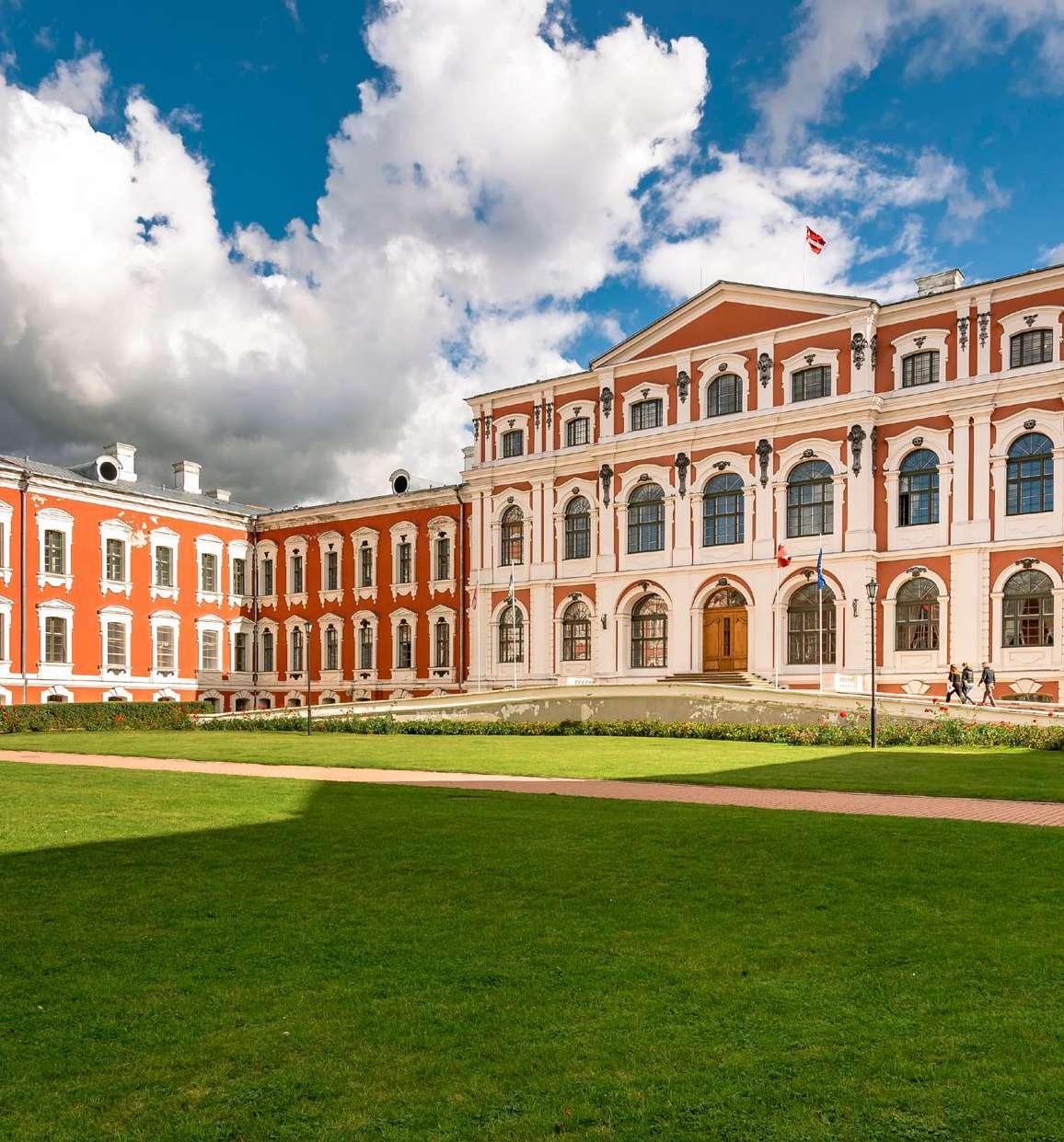
University of Latvia
Riga Technical University
Riga Stradins University
Latvia University of Life Sciences and Technologies
The cost for post-secondary education can vary, depending on the program, the university, and exam results. In public universities (such as LU and RTU), there are state-subsidized spots for the students with the best grades. Meanwhile in private universities, such as RSU and SSE, full tuition is applied.
Student-friendly housing is provided in most of the universities ranging from €65 to €350 per month, depending on the facilities, number of students in the room, and extras.
For more info, check out the Study in Latvia page:
A variety of master’s and doctorate programs are available through any of the universities.
Several MBA programs offer world-class education for executive level professionals in English:
⊲ Stockholm School of Economics in Riga (the #1 provider of Executive education in the Nordics & Baltics according to the latest worldwide ranking)

⊲ Riga
The country is filled with learning opportunities, both formal and informal. Here are a few state-funded initiatives worth keeping an eye on.
⊲ Adult learning program
500 different courses are co-financed by the State Education Development agency and the European Social Fund. Be it programming, entrepreneurship, construction or project management, everyone will be able to find something useful.
⊲ Specialist and manager-level programs
LIAA offers various programs at different times of the year for specialist- and manager-level professionals, such as the mini-MBA program in Innovations in collaboration with Riga Business School, executive education at a program organized by Stanford university etc.

There are a few options for you, ranging from long-term residence to becoming a full-fledged citizen.
After at least 5 years of residence in Latvia & the EU, third-country nationals gain the right to apply for a long-term resident status.
Your benefits:
⊲ Visa-free travel within the Schengen zone
⊲ The ability to work anywhere else in the EU after one year of work in any EU country, along with the right to apply for a residence permit there.
The criteria:
⊲ The last 5 years have been spent continuously and lawfully residing in the country’s territory.
For more information on the application process & criteria, see here:
What can be better than realizing that you’re home, and that you’re here to stay? Well, it might be realizing that you can become part of the exclusive club of 2 million citizens.
Your benefits:
⊲ Travelling visa-free within 150 countries including the Schengen area
⊲ Access to world class EU healthcare system
⊲ Latvian and EU citizenship for your children
⊲ Access to world class educational system of EU and EFTA.
⊲ Right to work in EU and EFTA countries
The criteria:
⊲ At least 15 years old
⊲ Permanent place of residence has been in Latvia for no less than the last 5 years, with some exceptions
⊲ Fluency in Latvian, knowledge in the basic principles of the Constitution of the Republic of Latvia, the text of the National Anthem, and the basics of history and culture
⊲ Having a legal source of income
⊲ Submission of notice regarding the renunciation of your former citizenship and an expatriation permit from that country.
Those who have Latvian ancestral roots can apply for dual citizenship
See the process, conditions and documents needed for the process in detail here:

A one-stop-shop service to support newcomers in settling in, offering free services such as:
⊲ Translations
⊲ Legal, employment, educational, wellness consultations
⊲ Psychologist support
⊲ Latest info on language courses
⊲ And more!
Dedicated consultants to support Latvian diaspora in remigrating back to Latvia.
They’ll help you find:
⊲ Housing options
⊲ Employment opportunities
⊲ And any answers you might have
Consultants that specialize in supporting the free movement of workers within the EU, Switzerland, Iceland, Liechtenstein and Norway.
They can help with:
⊲ Finding employment
⊲ Info on living conditions
There are a few organizations that are here for you when you arrive in Latvia. Their goal? To help you settle in and feel at home. Take a look at what’s on offer, and what will support you best.
Try searching for Facebook groups that connect expats or your nationals, like “Expats in Latvia”, “Indian association in Latvia”, “Expats in Riga” etc.
⊲ And any other related questions
A non-profit organization that supports immigrant integration, particularly foreign students, asylum seekers and people with refugee and alternative statuses.
They offer:
⊲ Social mentoring
⊲ Language learning
⊲ Generating employment, volunteering, and entrepreneurship opportunities
⊲ Bureaucratic support
Visit their website:
There’s one coordinator for each region, get in touch with yours:
Contact a consultant :
For more info go to:
Latvija.lv
A platform to quickly access Latvian State services.
Here you’ll find info and resources on:
⊲ Social services
⊲ Finances and taxes
⊲ Consular services
⊲ Environment
⊲ Rights
⊲ And more
Take a browse to learn more about available services:
Above all, safety is the most important. Latvia’s a great place to live, but as with any place, especially large cities, being vigilant is always recommended.

Here are a few recommendations from locals: In crowded places such as the Central Market or Bus Station, keep an eye on your belongings and don’t leave bags or pockets open.
Emergency numbers:
⊲ Fire and rescue service: 112
⊲ Emergency medical assistance: 113 or 112
The State Revenue Service’s platform for communicating with taxpayers and performing all of the related tasks.
Here you’ll be able to:
⊲ Submit tax declarations
⊲ Pay taxes online
⊲ Communicate with the SRS
⊲ And more
To access the EDS, you’ll either need a Latvian bank account or an eID card issued by the OCMA.
Go to the website here:
When going into nature, beware of forest ticks – they can be abundant from May to September. Use tick-repellant spray and tuck your pants into your socks. If you do get bitten by one, get in touch with a doctor to remove it properly as soon as you get back to the city.
⊲ Police: 110 or 112
⊲ Gas emergency service: 114
www.investinlatvia.org